-
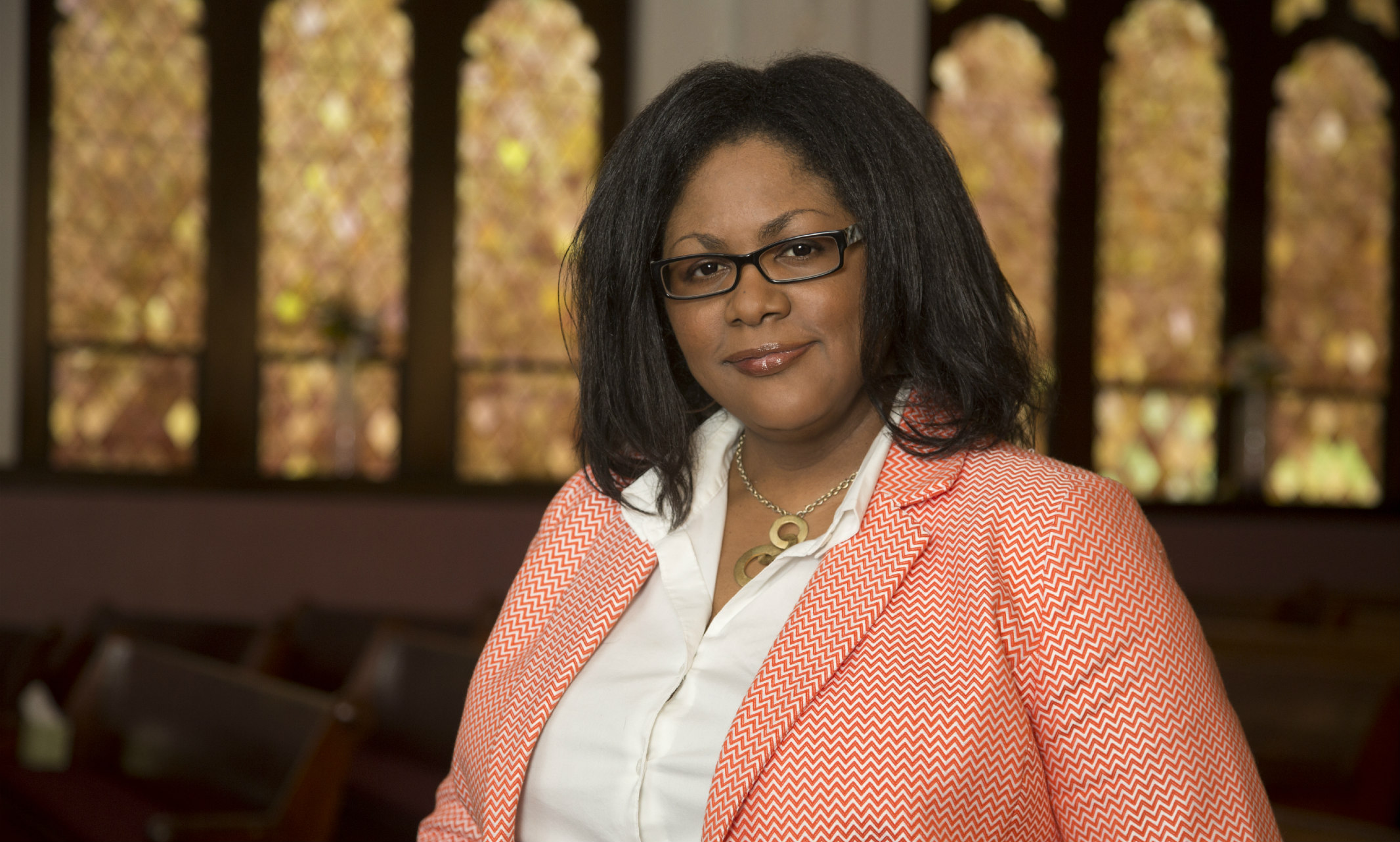
Jannette Berkley-Patton will focus on overcoming health barriers with African Americans
The National Institutes of Health awarded a $3.3 million grant to Jannette Berkley-Patton, professor, at the University of Missouri-Kansas City School of Medicine, to help improve diabetes prevention outcomes with African Americans.
“This is an extension of what we’ve been doing in the School of Medicine with Project FIT, which stands for Faith Influencing Transformation” says Berkley-Patton, Ph.D., director of the UMKC Health Equity Institute and the Community Health Research Group. With Project FIT, nearly 900 people have participated in the program and more than 200 medical, physician assistant, nursing and health studies and psychology students have been trained as FIT health coaches to help deliver the program.
At UMKC, Berkley-Patton has won other significant grants that focus on improving the health of African Americans, and each centers on health inequities and community-engaged research with African American community-based organizations, including places of worship because of their cultural importance. This new five-year grant, which starts on April 1, will include similar strategies. To date, Berkley-Patton’s work has been supported by more than $10 million in federal grants over the past 14 years.
The grant will tailor the Centers for Disease Control and Prevention’s National Diabetes Prevention Program, an evidence-based lifestyle change intervention, with 360 African American pre-diabetic participants recruited from Truman Medical Centers. The program includes 22 group sessions that take place over one year and primarily focuses on eating healthier and exercising regularly.
Preventing diabetes can help stave off other associated chronic health issues including blindness, kidney failure and heart disease.
People who participate in the CDC program aim to lose 5 to 7 percent of their body weight and exercise 150 minutes per week, which have been shown to reduce the risk of diabetes by up to 60 percent. The program has also been found to outperform pre-diabetes drugs such as Metformin.
However, African Americans typically don’t fare as well, especially women and those with low incomes. Some of the issues include barriers such as cost of the program, transportation, childcare, access to healthy food and places to exercise. These barriers are often referred to as social determinants of health.
“With the grant, we’re trying to address every barrier related to social determinants,” Berkley-Patton said. “The most successful outcomes are correlated with attending the sessions – the more sessions attended, the better the outcomes.”
The grant will support linking Truman Medical Centers patients to FIT Diabetes Prevention Program classes in their home communities via church, community center or neighborhood association settings. The program will be culturally-tailored for African American adults. The program is at no cost to the participant – typically it costs $450 per year. In addition to Truman Medical Centers, program partners include several urban Kansas City churches, Calvary Outreach Network, YMCA, Chestnut Resource Center, KC Care Health Center, Children’s Mercy and the University of Kansas.
Although the grant begins this week during a pandemic that has Americans sheltering in place and working from home, the first year of the grant is a planning year.
“With this grant, we are looking forward to further refining our current Project FIT program to have trained UMKC students and community members working side-by-side as FIT coaches,” says Carole Bowe Thompson, project director, UMKC Community Health Research Group.
The program will be launched by this time next year.
“We are looking forward to getting started,” Berkley-Patton said. “We want to show participants that here’s a premiere program designed just for you.”
Mar 31, 2020
-

Marjorie Sirridge, M.D., was a champion for women in medicine and a fixture at the UMKC School of Medicine
In recognition of Women’s History Month, we are recounting the impact of women in STEM at UMKC.
A deep appreciation for medical humanities and an emphasis on empathy and compassion for her patients were hallmarks of Marjorie Sirridge, M.D. They are also bedrocks of the curriculum at the UMKC School of Medicine, where Sirridge was a fixture from time of its inception until her death.
Sirridge earned her medical degree in 1944, graduating first in her class from the University of Kansas School of Medicine. She dropped out of medicine for a time when told it was improper for women to become pregnant while doing their post-graduate residency.
She later returned to medicine and had worked for more than a decade in private practice and on faculty at the University of Kansas School of Medicine when she and her husband, William, received a new calling. They were recruited to serve as two of the three founding docents for the new University of Missouri-Kansas City School of Medicine when the School opened in 1971.
Sirridge spent the remainder of her career in numerous leadership roles at the school including a tenure as dean. While serving as a docent, Sirridge established the UMKC Program for Women in Medicine to help female students and physicians succeed in a male-dominated system. Due in part to her influence, the UMKC School of Medicine boasts one of the highest rates of female students among the country’s co-educational medical schools.
Longtime School of Medicine Dean Betty M. Drees, M.D., remarked following Sirridge’s death in 2014 at the age of 92, how Sirridge had enriched those around her.
“We have all been extremely privileged to have worked with Dr. Sirridge for many years and have been enriched by her tremendous wisdom and guidance,” Drees said. “Her contributions to the School of Medicine are many and are sure to have a lasting and positive impact on future generations of physicians.”
Sirridge was honored in 2010 by the Foundation for the History of Women in Medicine with the Alma Dea Morani, M.D., Renaissance Woman Award. In 2003, the National Institutes of Health’s National Library of Medicine (NLM) created a traveling exhibit called Changing the Face of Medicine: Celebrating American Women Physicians. Sirridge was one of the pioneering women included in the exhibit that now exists online to honor the achievements of women who excelled in their medical careers.
Marjorie and William Sirridge endowed the Sirridge Office of Medical Humanities and Marjorie Sirridge became its first director in 1992, building a program of courses in medicine and the humanities that other medical schools in the country have copied. She later endowed a professorship in medical humanities.
In 2011, the Kansas University Women in Medicine and Science organization established the annual Marjorie S. Sirridge, M.D., Excellence in Medicine and Science Award.
“There have been many ups and downs,” Sirridge said in her Changing the Face of Medicine biography. “But I have never felt that I made the wrong decision when I decided to be a physician.”
Mar 31, 2020
-
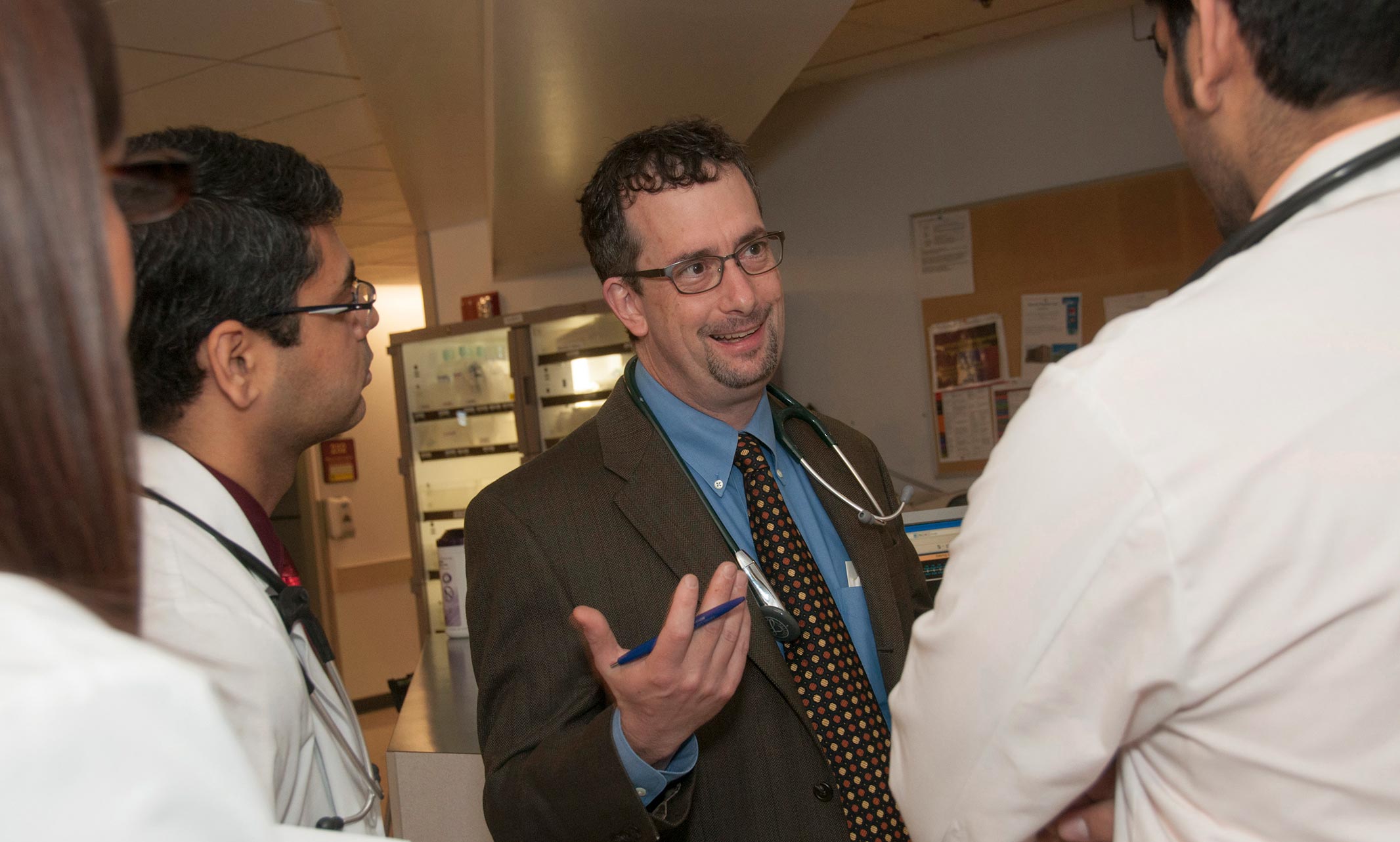
John Spertus is renowned for his work in cardiac outcomes
UMKC School of Medicine researcher John Spertus, M.D., M.P.H., is part of two large NIH-funded clinical studies published Monday, March 30, in the New England Journal of Medicine. The studies indicate eliminating unnecessary surgeries for cardiac patients could save the United States hundreds of millions of dollars annually.
Spertus serves as professor of medicine and is the Daniel J. Lauer, M.D., Endowed Chair in Metabolism and Vascular Disease Research at the School of Medicine, and Clinical Director of Outcomes Research at Saint Luke’s Hospital.
The studies looked specifically at coronary-artery disease patients who had high-risk blockages with at least 10 percent or more of the heart muscle being at risk. One focused on patients with preserved kidney function and the other targeted patients with end-stage kidney failure. That latter group has largely been excluded from almost all cardiovascular trials, despite having a high prevalence of coronary artery disease and death, Spertus said.
Both studies, conducted in unison, examined the most important outcomes for patients, hospital visits (including heart attacks and death) and patients’ symptoms, function and quality of life. Participants were randomized to undergo invasive angiography and surgeries with aggressive medical therapy or aggressive medical therapy alone. The goals of the medical treatment were cholesterol reduction, blood pressure control, aspirin and medications to treat chest pain.
The studies in patients with preserved kidney function showed that invasive medical procedures provided no reduction in hospital visits, but did improve patients’ symptoms and quality of life, if they had chest pain within a month of entering the trial. These health status benefits were evident within three months and sustained out to four years.
“Importantly, this benefit was only observed in patients who had angina, chest pain, and not in asymptomatic patients,” Spertus said. “There is no indication for these procedures in patients whose symptoms are well-controlled with medications alone. If we avoided revascularization in asymptomatic patients, we could potentially save about $500 million to $750 million a year in the United States alone.”
Among patients with very severe kidney disease, there was no significant difference in hospital visits or in patients’ symptoms and quality of life.
“While disappointing, this is a very ill patient population for whom an aggressive, invasive treatment strategy does not seem to offer much benefit,” Spertus said.
The NEJM published four papers from these two studies, one for each trial focusing on the clinical events and another for each trial focusing on the quality of life outcomes. Spertus was involved in writing all four and is the lead author on the two quality of life papers. He and his team designed, analyzed and led the health status, quality of life components of both trials.
Spertus is the author of the Seattle Angina Questionnaire (SAQ) that used in the studies. It is widely recognized throughout the world as the gold standard for quality of life measurement in cardiac medicine.
“Our group has led its use and analyses in multiple studies and quality improvement efforts,” Spertus said. “In light of these findings, the SAQ may start becoming a routine part of clinical care in cardiology.”
Mar 30, 2020
-
Cancer and then a cancelled senior season couldn't keep the resilient UMKC golfer down.
From a last-minute scholarship to a cancer diagnosis, chemotherapy and then coronavirus precautions cutting his last season short, the UMKC golfer's story took many twists and turns. "You just have to keep a positive mindset and have faith," he said, "succeed and have fun every single day because you never know what’s going to happen." Read the Golf Channel's profile of Sam.
Mar 28, 2020
-
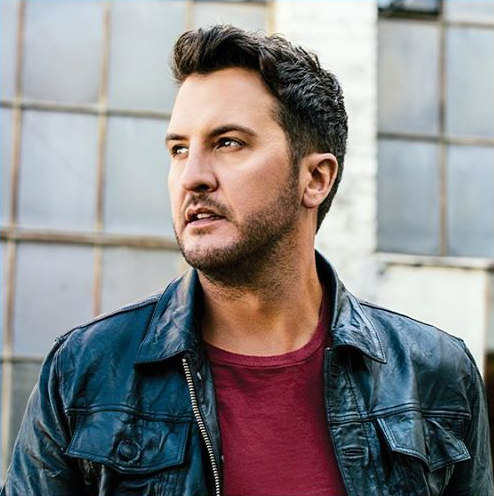
Country music superstar makes gift to student emergency fund
Country music superstar Luke Bryan has donated $8,000 to a new emergency fund set up to help students at the University of Missouri-Kansas City cover unexpected expenses related to returning home, food, housing and other issues stemming from the coronavirus epidemic.
The donation came from the proceeds from Bryan’s annual Farm Tour. Bryan typically makes contributions to colleges and universities near Farm Tour stops. Bryan was scheduled to perform at a farm in Louisburg, Kansas in October 2019, but the concert was moved to the Sprint Center due to weather issues.
“UMKC is extremely grateful for the gift provided by the Luke Bryan Farm Tour in helping launch our emergency support for our students,” said Lisa B. Baronio, chief advancement officer and UMKC Foundation president. “Luke Bryan represents the values of many in the Heartland and has always generously supported the communities where he has performed.
“Many of our students are strongly impacted by this pandemic and are in need of resources such as food, funds to travel home, and even support to pay their bills,” Baronio continued.
“Students often work in the service industries that have shut down, including restaurants and retail stores, and need your help. Within the first 24 hours of launching this site, multiple students have reached out asking how they can apply for a micro-grant. We encourage you to do what you can to help our students during this challenging time.”
Bryan has been named "Entertainer of the Year" by both the Academy of Country Music Awards and the Country Music Association.
Learn more about donating to the Student Emergency Fund.
If you're a student who is in need of aid, learn more about how to apply for emergency funding.
Mar 27, 2020
-
Caroline Davies, head of Environmental Studies at UMKC, said there has been a change in pollution.
“If there’s a bright side to this pandemic, it’s I think we can learn a lot about climate change and how to address it,” Davies said. “Because, until now, there’s been no urgency the way a pandemic has a whole lot of urgency.” Catch her interview with KCTV-5 here.
Mar 27, 2020
-
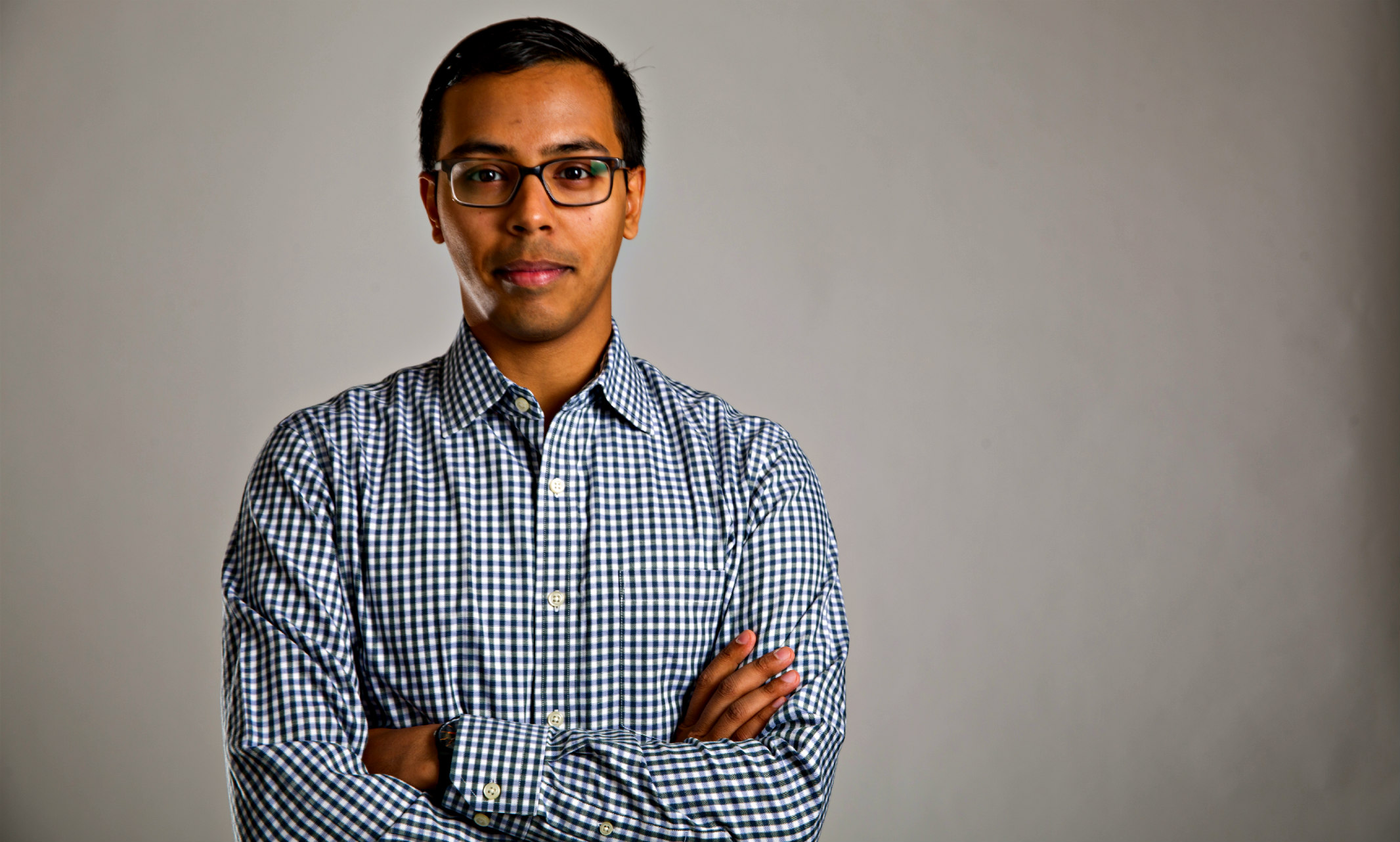
Riddhiman Das (B.S.C.S ’12, M.S.C.S. '19) is part of a Kansas City team developing White House-endorsed app designed to track users’ locations
From student entrepreneur to product architect for Kansas City’s renowned EyeVerify (now Zoloz) to co-founder and CEO of six-month old digital startup TripleBlind, School of Computing and Engineering graduate Riddhiman Das has set off on yet another groundbreaking venture that, this time, could help solve the global COVID-19 pandemic.
The seven-member TripleBlind startup was recently featured in Startland News following the White House’s expected endorsement of a new coronavirus tracking app, Private Kit, they designed to help the government keep tabs on where the contagious disease is spreading while maintaining the privacy of everyday citizens.
“Solutions for COVID-19 are top-down. The government wants to track everything from where you’ve been to who you’ve encountered, but that can be overreaching,” Das said. “Our team wanted to install citizen-first private tracking to keep users’ data private while still helping to track the virus.”
Private Kit is a voluntary app that smartphone users can install to track where they’ve been in recent days without having to rely solely on their memories. Should they need to get tested, they can choose to make their data available for health experts to determine if they need to test others as well. Das said the added benefit of the app is that if users decide not to download it immediately, they can do so later and allow it to import their location data from Google or Apple maps applications.
In addition to the White House, foreign governments around the globe are also endorsing the use of Private Kit, as well as, the city of Kansas City, Missouri; Boston; Washington, D.C.; the World Health Organization; the Department of Health and Human Services and the Centers for Disease Control.
TripleBlind enables entities to safely provide and consume sensitive data and algorithms in encrypted space, without compromising privacy or security. The company worked on 100% of Private Kit’s development until recently when they began working with students from Harvard and the Massachusetts Institute of Technology to help bring the app to life.
Das credits his career successes to his student experiences at UMKC.
“UMKC has been phenomenal,” Das said. “I wouldn’t be where I am today had it not been for Bloch E-Scholars or the skills I learned at the School of Computing and Engineering and Zoloz, which also started at UMKC.”
His advice for students following his footsteps?
“Optimize your resume. Do a lot of internships. And a variety of them so that you can diversify your experiences.”
Mar 26, 2020
-
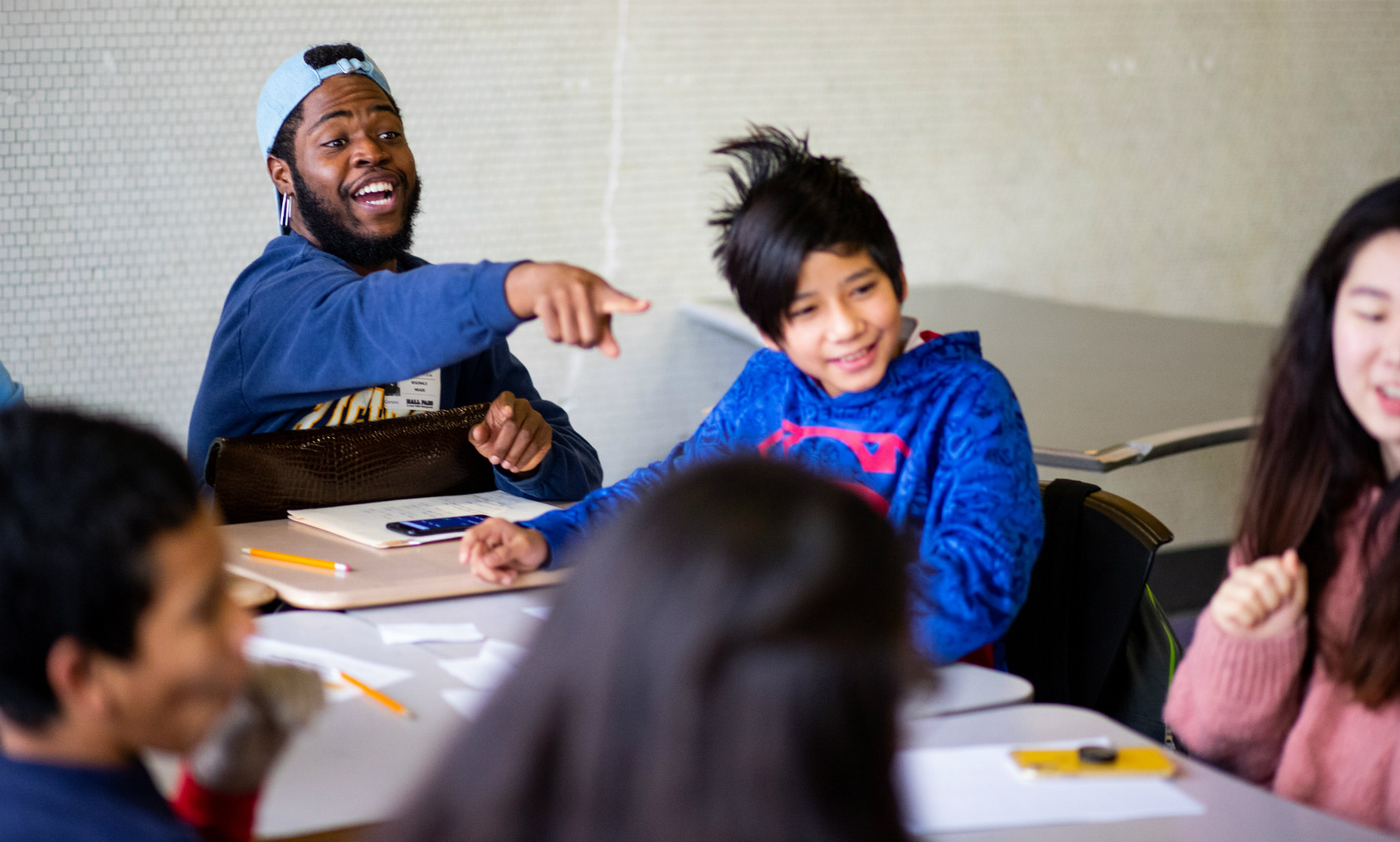
The Institute for Urban Education kicked off a $15 million capital campaign to help support enrollment growth and programming additions for student...
The University of Missouri-Kansas City School of Education is launching major efforts to expand its Institute for Urban Education, which prepares students and teachers for success in urban classrooms.
The institute recently kicked off a $15 million capital campaign with support of the newly appointed Dean's Fundraising Council, co-chaired by Leo Morton, UMKC chancellor emeritus and DeBruce Companies COO; and Jerry Reece, former CEO of Kansas City real estate agency ReeceNichols.
The $15 million campaign aims to support enrollment growth, programming additions and staff support for the Institute for Urban Education as it works to address the need for more highly motivated, exemplary teachers in K-12 classrooms in greater Kansas City area school districts.
Programming additions include:
Adding a graduate education component to the Institute for Urban Education's existing undergraduate program
Opportunities for career changes — the Master of Arts in Teaching, a four-semester program for people with bachelor's degrees in any area interested in teaching
Additional services to partner schools, professional development in diversity, equity and inclusion and culturally relevant instruction, masters degrees and certifications
Enrollment-growth tactics include:
Grow Your Own: a comprehensive approach to developing pipeline programs for future Institute for Urban Education students/teachers in local K-12 schools. The program aims to add more teachers of color, particularly males, who view urban education as a social justice profession.
Expanded scholarship opportunities, including the Sherman Scholars program, which will provide more than 150, $15,000 annual scholarships over five years to support students in both graduate and undergraduate teacher prep programs.
Staffing additions: new associate director for urban education, 2.5 staff coordinators and a recruiter
“Supporting urban education continues to be a top priority for UMKC,” said Justin Perry, dean of the UMKC School of Education. “The expansion of the Institute for Urban Education provides us unique opportunities to help address the teacher shortage in Kansas City, and help place more well-equipped teachers in classrooms who reflect the population of the students they serve. We are excited to continue working with our partner schools as we support our community's efforts to shape the future of the Kansas City education system it deserves.”
The institute partners with the following greater Kansas City school districts to develop pipeline programs for future teachers: Kansas City Public Schools, Kansas City Kansas Public Schools, Center School District and Hickman Mills School District
Founded in 2005, the Institute for Urban Education prepares and supports teachers for success in urban classrooms by focusing on social justice, multicultural education, diversity and equity. The institute has remained a locally focused program, recruiting students from neighboring communities who want to remain in the greater Kansas City area for their careers.
Mar 26, 2020
-
UMKC associate professor of finance says, “I think in the short term, the unemployment numbers are probably going to get worse before they get bett...
Nathan Mauck of the Henry W. Bloch School of Management says consumers could be cautious about spending after the pandemic ends. See his interview with KMBC here.
Mar 26, 2020
-
Mary Daly's bachelor’s degree in economics and philosophy from UMKC helped turn her life around. Master's and doctorate degrees followed.
Now leading the Federal Reserve Bank in San Francisco, Daly credits a counselor and a teacher who both believed in her with putting her on the road to success. She wants to use her position to level the playing field for women in economics and all Americans in every field. Read InStyle's profile of her here.
Mar 26, 2020
-
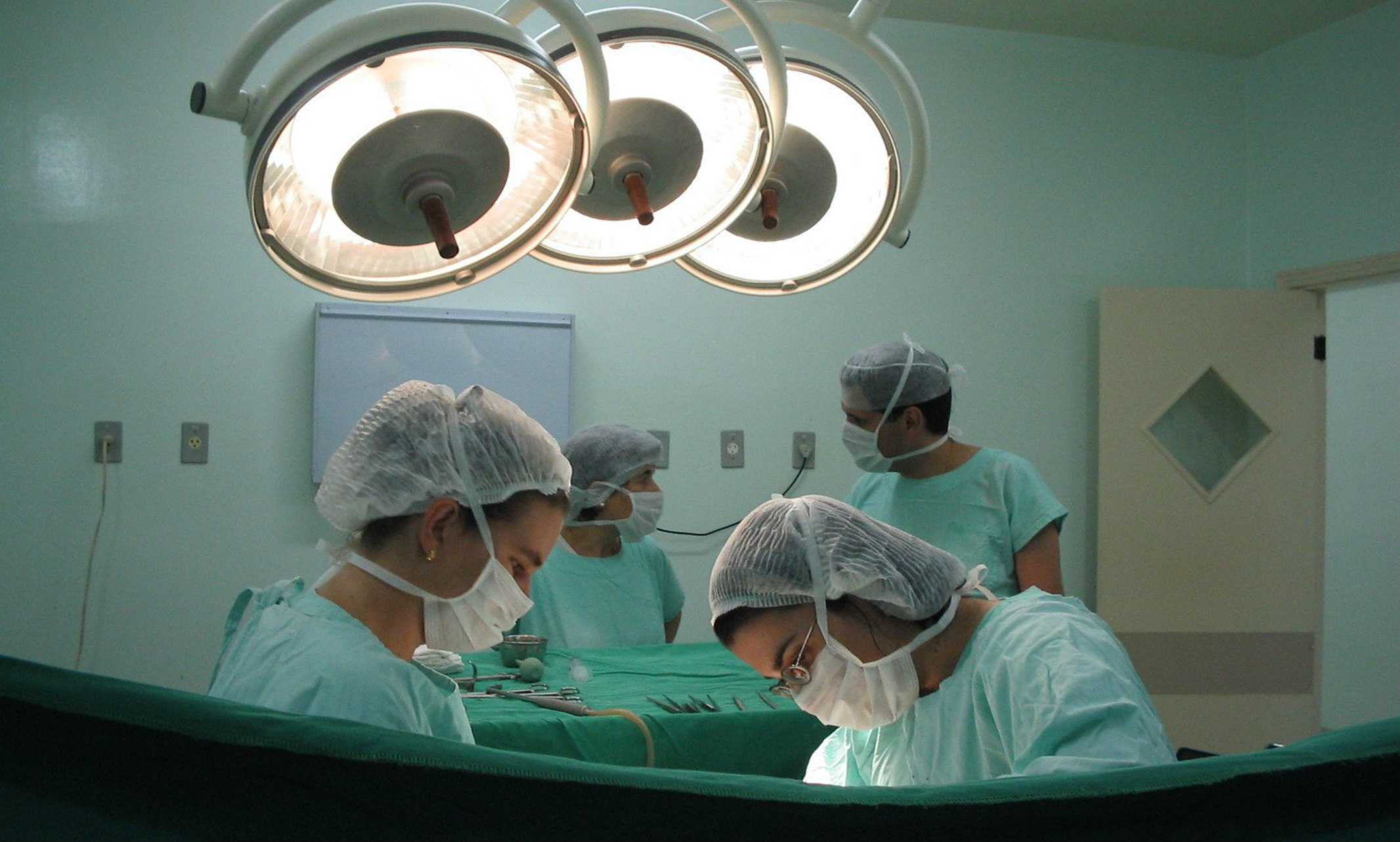
So far, UMKC has found and donated needed PPE to area hospitals
The need for personal protective equipment — called PPE — is one of the most serious challenges facing healthcare workers during the COVID-19 pandemic.
Every healthcare institution in the U.S. has a critical shortage of PPE and no help is on the way in terms of federal stock to replenish the supply. The call to inventory PPE at other sites that have available stock is one way to provide the help needed by hospitals, and that is why the University of Missouri-Kansas City is on a mission to find and share currently unused PPE.
In the latest development in this ongoing effort, the UMKC-based Edgar Snow Memorial Foundation has obtained a donation of 2,000 critically needed face masks from a partner organization in China.
“Since 1974, the Edgar Snow Memorial Foundation has worked to promote friendship and understanding between the U.S. and China. During the current pandemic, at a challenging time for both nations, it is truly meaningful and gratifying for us to learn that our partner organization in Shanghai has generously donated protective face masks to the foundation for us to distribute to areas of greatest need here in Kansas City,” said Jim McKusick, president of the Edgar Snow Memorial Foundation and dean of the UMKC Honors College. “This donation was provided by our partner organization, the Shanghai People's Association for Friendship with Foreign Countries (SPAFFC), a non-governmental organization based in China. It speaks to the deep friendship and mutual respect that exists between the people of the U.S. and China, thanks to the devoted work of many people to build strong and enduring relationships that transcend any cultural or political differences. Such a gift to the UMKC School of Medicine seems especially appropriate because the foundation was originally co-founded by E. Grey Dimond, a key founder of the UMKC medical school and the architect of its unique six-year combined B.A./M.D., who was a good friend of Edgar Snow."
So far, UMKC has located and given more than 20,000 masks, tens of thousands of pairs of gloves and hundreds of gowns to local hospitals.
“What we are doing on the UMKC Health Sciences Campus is working with our colleagues across the university to identify PPE that can be deployed to those hospitals most in need, and we are sharing that precious equipment,” said Mary Anne Jackson, M.D., interim dean at the UMKC School of Medicine.
Jackson, who specializes in infectious disease, is a national expert on the new coronavirus. She said proper PPE is crucial.
"Caring for patients with COVID-19 in our hospitals requires institutions to provide explicit guidance so staff can identify patients that need hospitalization and use all measures to prevent spread to other patients, and to themselves.” - Mary Anne Jackson, M.D.
“As the COVID-19 pandemic engulfs the United States, there are gaps in our scientific knowledge to tell us how many have been infected, and to identify the full spectrum of symptoms and signs. Adequate and reliable testing to help us correctly identify cases has not been widely available,” she said. “Still, the patients come and we care for them. Caring for patients with COVID-19 in our hospitals requires institutions to provide explicit guidance so staff can identify patients that need hospitalization and use all measures to prevent spread to other patients, and to themselves.”
To date, Italy, the hardest-hit country in the world, has seen an enormous number of cases; 20% of those infected are the doctors and nurses caring for the patients, Jackson said.
“Across the country, we are already seeing New York in a desperate situation,” Jackson said. “California, Washington state and now Louisiana, all are seeing a steep uptick in cases that threaten to overwhelm the healthcare system within the next week, and states like ours are only weeks behind unless we strictly enforce social distancing to reduce spread. That is why schools and businesses are closed and our mayor has issued a stay-at-home order. We face caring for patients without bed capacity, ventilators or the PPE needed to keep our workforce safe and operational.”
“What we are doing on the UMKC Health Sciences Campus is working with our colleagues across the university to identify PPE that can be deployed to those hospitals most in need, and we are sharing that precious equipment.” - Jackson, M.D.
Within minutes of being asked if the UMKC School of Dentistry had surplus PPE it could part with, Dean Marsha Pyle and her colleagues rounded up a large inventory of boxes filled with gowns, masks and gloves that are not being utilized as the dental clinics have closed to all but emergency patients.
Later, the UMKC schools of Nursing and Health Studies and Biological and Chemical Sciences also donated. KC STEM Alliance at the School of Computing and Engineering gave 500 pairs of goggles. These were brought to local hospitals where staff said supplies were critically low.
“We do know that everyone wants to help and there has been a grassroots effort to have the community sew cloth masks. A recent study of cloth masks cautions against their use...so these are not the protection that healthcare workers can use in the healthcare environment at this time." - Jackson, M.D.
Students from the UMKC Schools of Medicine and Dentistry led by Stefanie Ellison, associate dean for learning Initiatives at the School of Medicine and Richard Bigham, assistant dean of student programs at the School of Dentistry, are collaborating to identify other sources in the community and coordinating efforts to collect and distribute these vital supplies to local healthcare workers on the front lines. Others in the community that may be willing to donate their supplies include:
Nail, hair, tattoo and piercing salons
Local carpenters and maintenance workers, especially if contracted with apartment complexes, professional painters, drywallers, construction/machine operators, welders
Professional colleagues in veterinary medicine
Others in the local and regional dental community
Warehouses (such as UHaul), mechanics, auto shops
Cleaning services, or any organization that employs janitorial services or cafeterias
Any organization with nursing stations (pools, gyms, schools)
“We are also aware that our colleagues at Missouri S&T have developed a prototype for a face shield and N95 respirators (a protective mask designed to achieve a close facial fit with highly- efficient filtration of airborne particles) that could be mass produced, and we’re actively looking for community resources to do so,” Jackson said. “We do know that everyone wants to help and there has been a grassroots effort to have the community sew cloth masks. A recent study of cloth masks cautions against their use: moisture retention, reuse and poor filtration may result in increased risk of infection so these are not the protection that healthcare workers can use in the healthcare environment at this time."
Shortages of PPE are severe and increasing because of hoarding, misuse and increased demand, according to the World Health Organization. There is clear data that pricing for surgical masks has increased sixfold, N95 respirator prices have tripled and even gown costs have doubled. The governor of New York has criticized the price gouging that prevents him from getting the masks he needs in the most urgent of situations there.
The WHO has shipped 500,000 sets of PPE to 27 countries, but supplies are rapidly depleting and that stock won’t nearly cover the need. It estimates that PPE supplies need to increase by 40%, and manufacturers are rapidly scaling up production and urging governments to offer incentives to boost supplies, including easing restrictions on the export and distribution of PPE and other medical supplies.
This from WHO Director-General Tedros Adhanom Ghebreyesus: "This cannot be solved by WHO alone, or one industry alone. It requires all of us working together to ensure all countries can protect the people who protect the rest of us."
To donate equipment to the UMKC PPE initiative, please email Stefanie Ellison at ellisonst@umkc.edu and Richard Bigham at bighamr@umkc.edu.
Mar 25, 2020
-
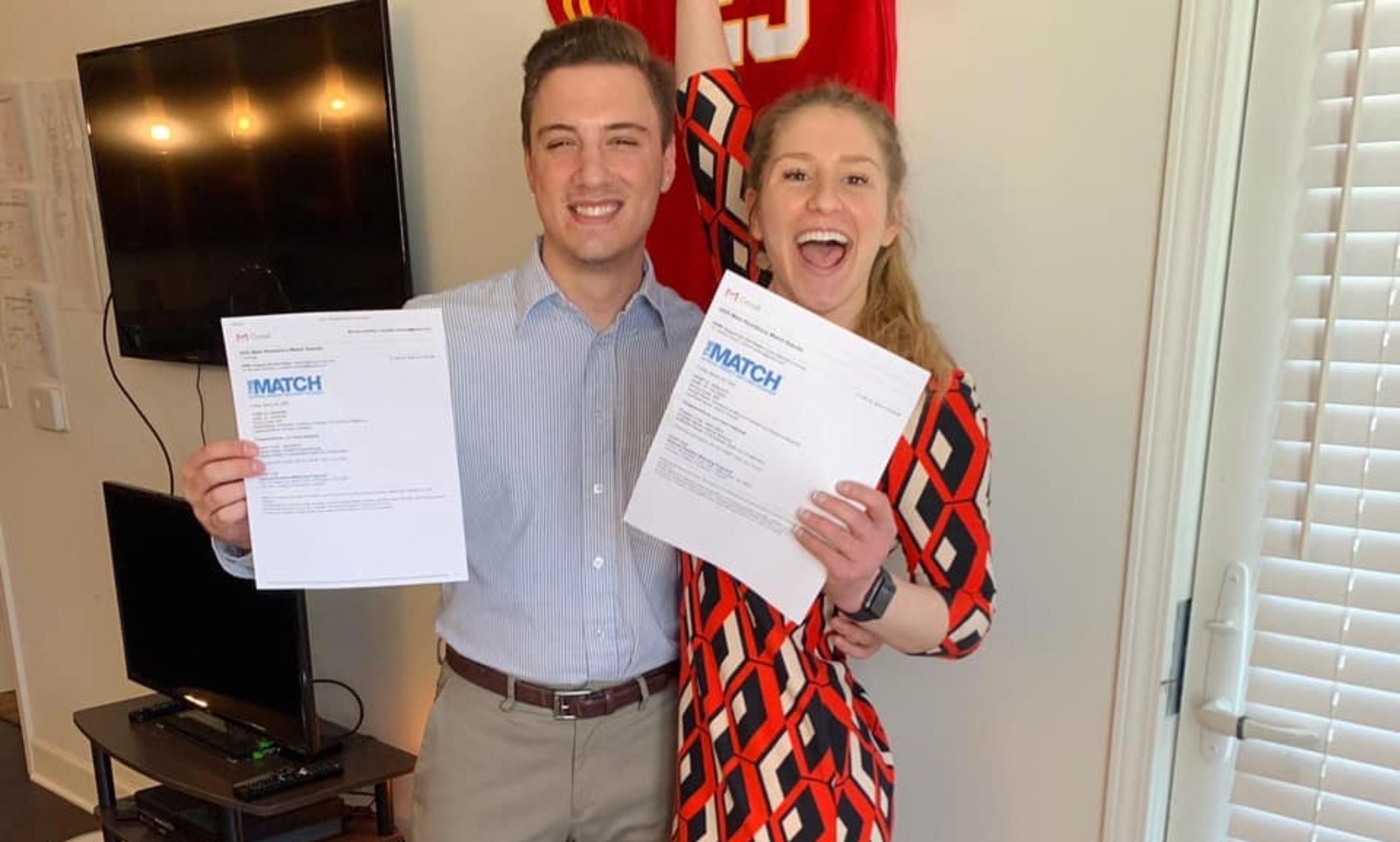
School of Medicine conducts virtual Match Day celebration
Match Day 2020 was like no other. Because of coronavirus concerns, the usual bustle bordering on bedlam at the School of Medicine was replaced by quiet, empty hallways.
There also was a video-streamed and email presentation of where the more than 100 graduates-to-be will serve their medical residencies, leaving them to smaller individual celebrations.
Interim Dean Mary Anne Jackson, M.D., addressed students, their families, faculty and friends with a video message. She congratulated the UMKC Class of 2020 for its hard work of the past six years and called Match Day a rite of passage that is this year all the more significant in light of the pandemic gripping the nation.
“When facing pandemics in the past, physicians have recognized a professional duty to care for patients, even in these difficult circumstances,” Jackson said. “That is why today I emphasize the human side of medicine. Today you promise to commit to put patients first, to always try to be worthy of the privilege of caring for patients, and that you will continue to pursue the education that ensures the care you provide is cutting edge and the best practice.”
Students and their residency matches were revealed as part of the on-line video production.
Just more than half of the UMKC class will be headed to a primary care residency in internal medicine, family medicine, obstetrics/gynecology, or pediatrics. That exceeds the national average and is in line with the school’s mission to provide primary care for the Kansas City area, Missouri and the rest of the Midwest.
While students celebrated at home, some took to social media to share their good news. Student couple Mike VanDillen and Ariana Foutouhi were excited to find that they matched together. See their post below.
The students won assignments in 27 states and the District of Columbia, from Massachusetts to Hawaii and California to Florida. Missouri had 31 of the placements, followed by 11 in Illinois, 10 in Florida, eight in Texas, five in Kentucky and four each in Kansas and California.
And, as usual, some are headed to the top names in medicine, including Mayo, Stanford, the Cleveland Clinic, Harvard, the University of Chicago and UCLA. Twenty-two will stay at UMKC and its affiliate hospitals; a baker’s dozen will be elsewhere in Missouri and Kansas.
Internal medicine was the top category with 39 placements — eight of whom will move on to sub-specialties after a year — followed by 14 in pediatrics or medicine-pediatrics, nine in family medicine, seven in general surgery, six each in anesthesiology and emergency medicine, and five in obstetrics/gynecology.
Jackson said in her message that the soon-to-be residents will join the front line of physicians and health care professional across the country playing a key role in caring for patients and responding to the current health crisis.
“Know that you as resident providers will take the knowledge you’ve learned here, that you will be a partner in the preparation and response that is critical at this time, that you will be the calm that stabilizes those who are afraid, and that you will be the kind, compassionate physician that is the hallmark of our School of Medicine,” Jackson said.
“Congratulations as we celebrate with you today, Match Day 2020.”
Mar 23, 2020
-
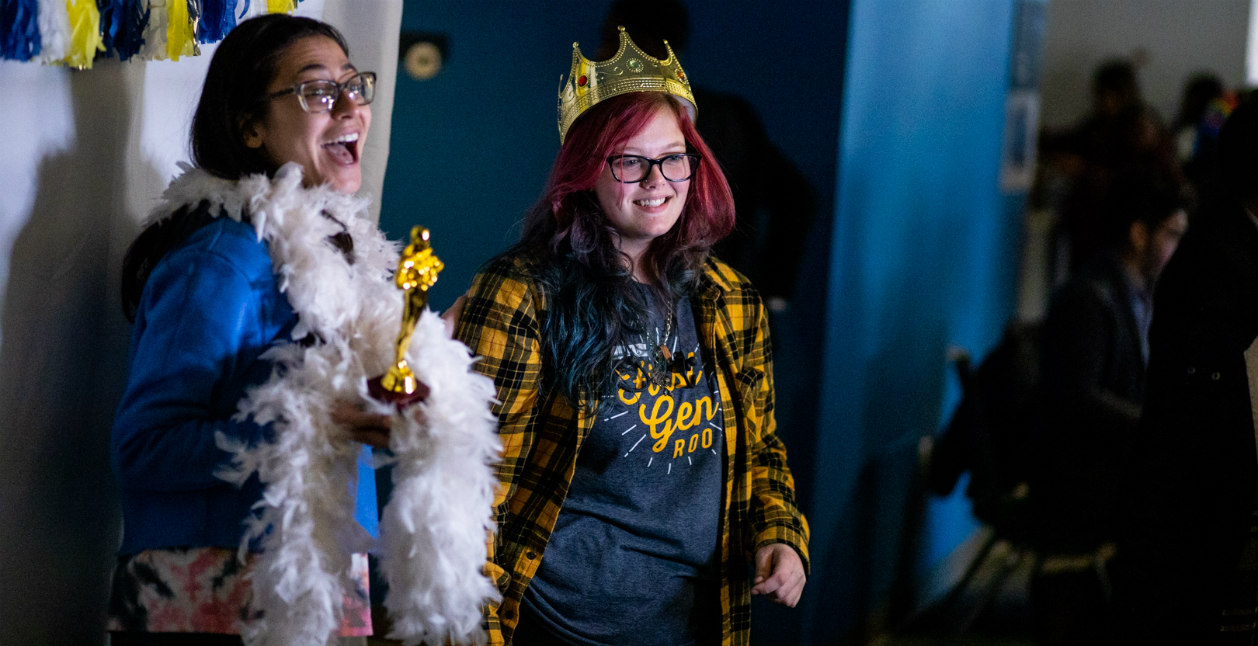
First-gen Forward designation recognizes universities that improve experiences and advance outcomes of first-gen students
The University of Missouri-Kansas City has been included in the 2020-21 cohort of First-gen Forward Institutions in recognition of its efforts to support first-generation students.
The First-gen Forward is a designation given by the Center for First-generation Student Success, an initiative of NASPA – Student Affairs Administrators in Higher Education and the Suder Foundation. The designation recognizes colleges and universities that have demonstrated a commitment to improving experiences and advancing outcomes of first-generation college students. Selected institutions receive professional development, community-building experiences, and a first look at the Center’s research and resources. About 40 percent of current UMKC undergraduates are first-generation college students, defined as those who do not have a parent with a college degree. UMKC initiatives for first-generation students include a First Gen Roo program designed to increase student success and satisfaction, with targeted goals for GPA, retention and graduation rates. Program goals are to facilitate campus navigation and integration, academic preparation and success (expectations, time management, note-taking, study skills, test-taking strategies); and social preparation (decision making, financial literacy, culture of higher education and strategies for success). The program begins with a week-long First Gen Roo Summer program immediately prior to the start of the fall semester which include early move-in, meals, resource workshops, academic sessions, one-on-one meetings with program staff, social events and more. During the fall semester, first generation peer mentors provide additional support in meeting the program goals. The program was pioneered by the College of Arts and Sciences and will be expanded to all UMKC academic units in Fall 2020. The university was also cited for the First Gen Proud program, a campus-wide initiative for first generation faculty, staff, alumni, and current students as well as supporters who were not first gen themselves, designed to recognize and celebrate the supportive, energetic, and inclusive first-generation community at UMKC. “Now in its second year, First-gen Forward institutions continue to lead the nation by their commitment to first-generation student success. The 2020-21 cohort consists of diverse institutions across the nation and we are pleased to welcome UMKC for their long-term commitment and demonstrated strategies for scaling first-generation student initiatives,” said Sarah E. Whitley, senior director of the Center for First-generation Student Success. UMKC Chancellor Mauli Agrawal said support for first-generation students is a key component of the mission of UMKC.“We respect our first-generation students as trailblazers for their families and communities,” Agrawal said. “Their success is our community’s success, and as Kansas City’s only public research university, we play a critical role in enabling and empowering that success.”“First-gen Forward is an exciting opportunity for UMKC to join an elite community of professionals prepared to share evidence-based practices and resources, troubleshoot challenges, generate knowledge, and continue to advance the success of first-generation students across the country. We are excited to see a groundswell of activity from the First-gen Forward cohort and know that UMKC will be a significant contributor,” said Kevin Kruger, president and CEO of NASPA.
Mar 23, 2020
-

The place for entrepreneurs offers a hotline, help and advice
The UMKC Innovation Center is always a go-to for small-business owners and entrepreneurs, and with the COVID-19 pandemic, it is now more than ever.
The center, which includes KCSourceLink and the Missouri Small Business Development Center (SBDC) at UMKC, has added resources to help businesses throughout the coronavirus outbreak.
Looking for funding updates and business help during the coronavirus outbreak? KCSourceLink has created a portal of business resources to help business owners navigate these challenging and uncertain times. Updated regularly.
In fact, the Small Business Administration (SBA) Economic Injury Disaster Funding became available for businesses in Kansas and Missouri on March 21. Call the KCSourceLink hotline at 816-235-6500 or email info@kcsourcelink.com to get connected with resource partners that can help complete paperwork and answer your questions.
Are you an entrepreneur? Take this survey from KCSourceLink to help community leaders and decision makers assess your needs and activate resources during the coronavirus outbreak.
The Missouri SBDC at UMKC continues to offer online classes to help entrepreneurs and business owners start businesses and navigate challenges.
“Typically, economic recessions trickle down to small businesses, but with this situation, restaurants and retailers are on the front end,” said Maria Meyers, executive director of the UMKC Innovation Center and founder of KCSourceLink and SourceLink. “Even when their doors might be closed, we’re here to keep financial advice and resources open.”
Entrepreneurs and small businesses create 58% of net new jobs in the Kansas City metro area. These are young and small firms with fewer than 20 employees. According to the the KCSourceLink survey data so far, our small businesses are hurting right now.
75% need financial assistance.
60% are worried about revenue dropping.
15% are concerned they may have to close.
What consumers can do to help small business right now:
Buy curbside lunch/dinner from local restaurants.
Shop local – buy gift cards, order online
What government officials can do to help small businesses right now:
Provide immediate financial support that enables small business to continue paying their employees – consider community/corporate supported short-term grants
Help small businesses manage cash flow by delaying tax payments
Extend benefits to solopreneurs
What Kansas City area entrepreneurs are saying:
The pressure to adapt quickly is immense.
Our cashflow depends on clients coming in every day, there is no reserve.
We have had to close up shop and file for unemployment.
We adjusted our food service offering to delivery/pick-up/to-go only and this week had to close up completely.
We won’t be in business without capital help.
We will have to find online work to support ourselves and our business, leaving us unable to gear this back up when the virus has run its course.
Once things settle down, my clients will likely be busy recovering and they may have to adjust their budgets which may cut my work.
Mar 23, 2020
-
Amid coronavirus concerns, dentistry comes to a near standstill.
Kansas City area dentists -- many graduates of the UMKC School of Dentistry -- suspend their elective procedures, as do the clinics at the school. Read about the shutdown and their concerns here.
Mar 23, 2020
-
Creative group tackles how the coronavirus is keeping restaurants empty and food banks low on supplies.
Check out KCTV5's report on UMKC students making sure unsold food at restaurants doesn't go to waste by getting it to area food banks.
Mar 20, 2020
-
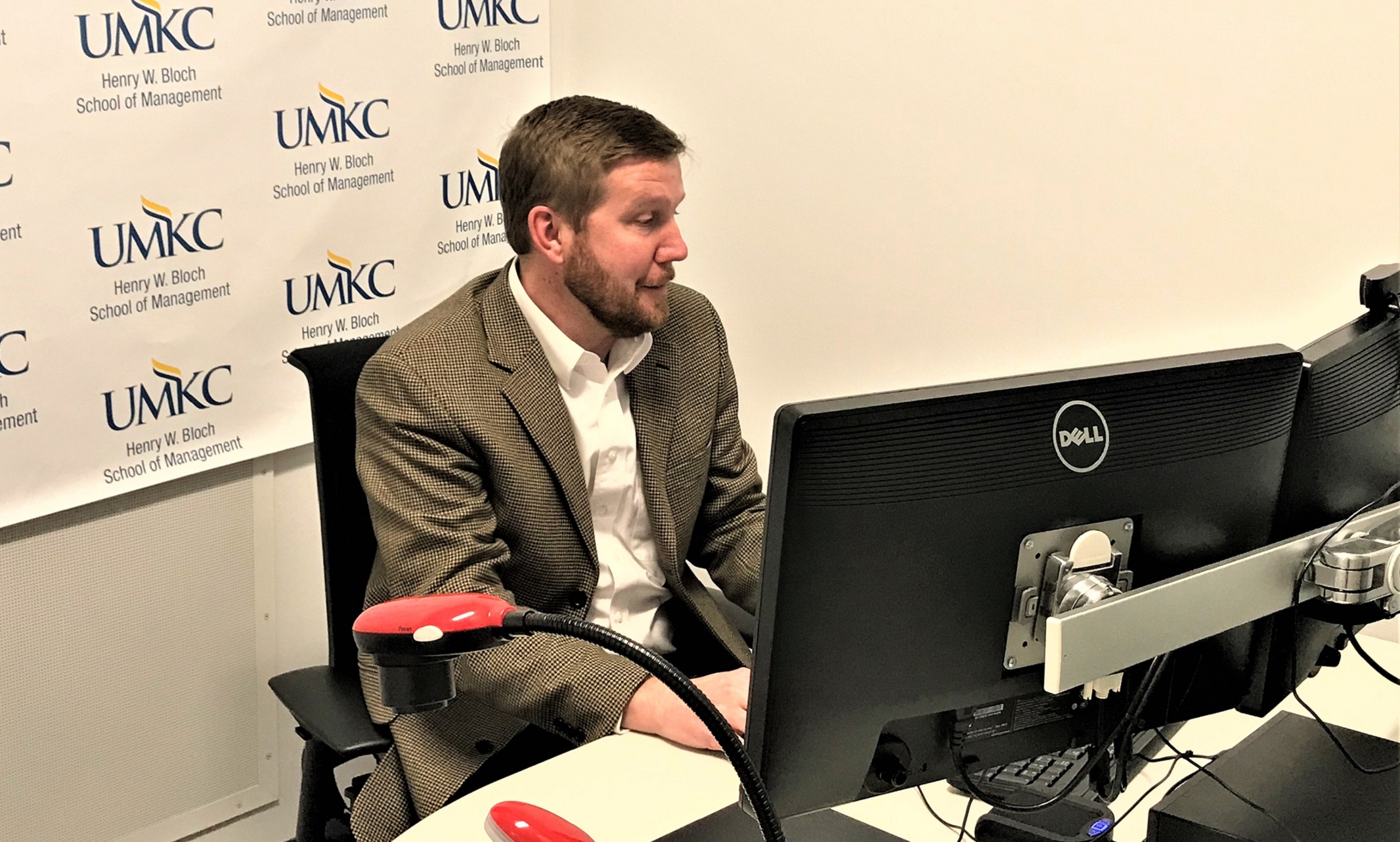
Professor Leigh Salzsieder shares his thoughts on the move
University of Missouri-Kansas City students and faculty are wrapping up their first week of exclusively online classes due to the COVID-19 pandemic. We checked in with seasoned online instructor Leigh Salzsieder, chair of the department of accountancy and associate professor of accounting at the Henry W. Bloch School of Management, about making the move to online.
How long have you taught online courses? How has the technology improved since you began teaching online?
I have been teaching online since 2017 and have seen a couple of big improvements. First, the textbook publishers’ ability to run their digital content native in Canvas makes designing and delivering a course significantly easier. Another big improvement is the development of high-functioning apps for mobile use. Canvas and Zoom both do very well on a mobile device.
Did you have any concerns when you started teaching online?
My biggest concern moving from in-person to online teaching was that I would lose the ability to connect with my students. While things are different online, I can honestly say that in many ways it is more humanizing. For example, I have never met so many of my students’ children and pets. In an online synchronous environment where students are logging in from home, it is common for a toddler or pet to wander on screen. Those sorts of interactions allow for student-to-student and student-to-faculty interactions to have more personal meaning. It probably sounds silly, but it is really cool!
What did students think of the switch to online classes? Any surprising reactions?
Most of the students have really enjoyed the online synchronous delivery. The added flexibility has been the students’ favorite part. In previous classes, I have had students join class from all over the world, and even from airplanes (although the connection wasn’t great).
What are the benefits of online courses? Challenges?
The biggest benefit for students is flexibility. It also allows them to pause and replay course content that they’re struggling with and need to revisit. In addition, having a significant portion of the material online allows students to interact with it on their terms. I have had students tell me they listen to lectures while working out, while driving, etc. Online integrated content also allows students to get quality feedback on content at any time day or night. That’s not to say I’m answering questions at 2 a.m., but my online content is answering their questions with detailed feedback on practice sets.
There are challenges to moving online, particularly for faculty. The change from in-person to online instruction can be a little scary. There are also costs to learning and adopting new technology, training and course certification, learning and creating new ways of assessing student outcomes, etc. Managing students online is also different than managing students in-person. It takes some time to get used to using discussion boards and other tools that facilitate meaningful interaction both peer-to-peer and with the instructor.
"Most of the students have really enjoyed the online synchronous delivery. The added flexibility has been the students’ favorite part."—Leigh Salzsieder
You're a member of eLearning Online Faculty Advisory Committee for UM System. What type of things do you work on for that group?
Our group is advisory to the eLearning Strategy and Implementation Oversight Committee which is the actual decision-making body for eLearning and includes provosts for the four system campuses and system-level representatives. Our group was created with the intention of providing a faculty voice directly to the Oversight Committee regarding the eLearning enterprise.
Any tips for students who are new to online learning? Professors?
I think my tip for students would be to establish a routine. Having content available 24-hours-a-day often leads to procrastination. When I ask successful students how they do it, having a routine is the most common response.
For professors, I would say try not to make your mind up about eLearning before you give it a chance. I’d also recommend that faculty utilize the resources available to them. We have faculty all over campus that are extremely effective online in areas you might not realize. For example, I serve on the eLearning Online Faculty Advisory Committee with Amanda Grimes from the School of Nursing and Health Studies and Kati Toivanen from Art and Art History, both of whom have excellent online courses.
Mar 19, 2020
-
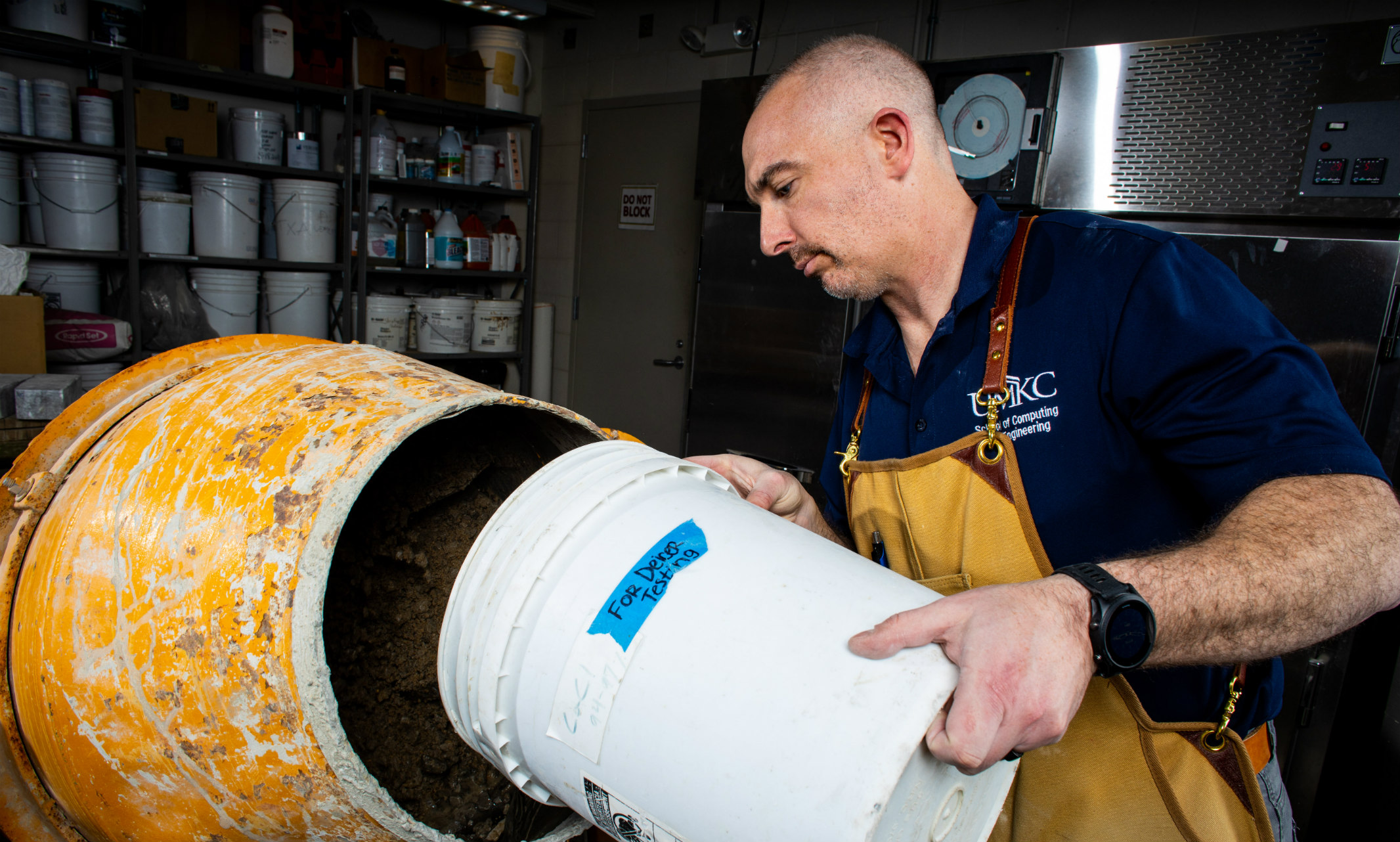
The research consortium will tackle flooding issues in Kansas City
The University of Missouri-Kansas City School of Computing and Engineering is teaming up with KC Water and other stakeholders — including FEMA , Unified Government and the Army Corps of Engineers — to launch the Center for Urban Stormwater Research (CUSR), a research consortium focused on tackling urban flooding in Kansas City.
John Kevern, Ph.D., professor and civil and mechanical engineering department chair will serve as director of the center. Kevern regularly works with KC Water, including School of Computing and Engineering alumni like Tom Kimes (B.S.C.E. ’87), manager of stormwater engineering, and Jose Lopez (B.S.C.E. ’15), watershed planner.
“Climate change is rapidly impacting engineering designs related to flooding across the globe,” Kevern said. “The Center for Urban Stormwater Research will help provide novel and innovative solutions to those challenges in Kansas City.”
The center’s first project will focus on a FEMA grant exploring ways to educate the public about the risks of flooding.
“Our hope with the center is to see Kansas City manage stormwater in a way that leads the nation and turn the city’s ‘wild rivers’ into community assets,” said Tom Kimes, manager of stormwater engineering at KC Water.
The School of Computing and Engineering will recognize KC Water as Organization of the Year at its annual Vanguard Awards, originally scheduled to take place on April 2. The new event date is to be determined. The Vanguard Awards celebrates excellence in computing and engineering and will also recognize Sherry Lumpkins, principal at Blue Symphony, LLC; George White Jr., civil engineer at GLMV Architecture; and PREP-KC.
Mar 19, 2020
-
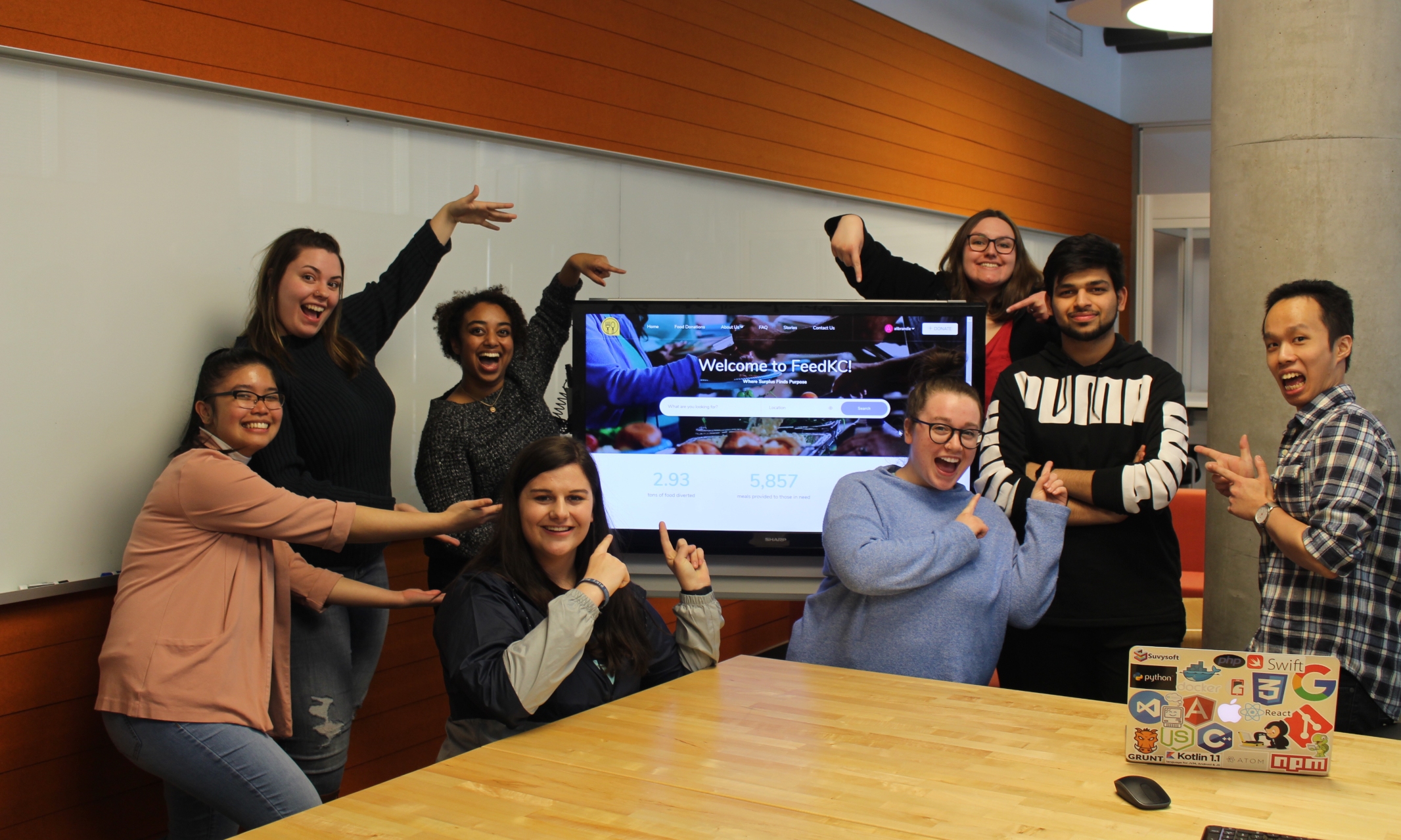
UMKC students help direct food from restaurants to food banks, especially needed now
With the demand at food banks growing, UMKC Enactus students have developed a new app to help restaurants donate excess food to local pantries for people in need.
Three years ago, UMKC Enactus students discovered 1 in 8 Kansas Citians struggles with hunger daily. Meanwhile, over 40 percent of food produced in the U.S. is thrown away. For the past two years, the team of UMKC students has been manually transporting food from local cafeterias, including at UMKC and Rockhurt University, to food banks across the city. To date, they have created 6,000 meals for those in need.
Now they’ve developed an app that connect locally-owned restaurants and cafeterias with excess food directly to food banks serving Kansas Citians in need. And with that need growing, due to coronavirus complications of schools being shut down and some employees getting fewer hours, the demand for food is higher than ever.
The new app provides a safe, tax-deductible way for restaurants to donate food and help feed the hungry. Restaurants can post produce close to its sell-by-date, prepared food that hasn’t been used, is still in the kitchen or was a leftover. A local food pantry can request it and work out a time to transport it. When the food is picked up, you’ll receive a form detailing the donation which can be used for tax purposes. You can learn more about the process on the FeedKC website.
The app was developed by a member of the team and graduate of UMKC. FeedKC is currently recruiting both restaurants and food banks to begin using it.
“With the launch of the web application, the team hopes to see an increase in their number of community partners,” said Caitlin Easter, who inherited the project from the former project leader, Andrea Savage, earlier this year. “Our team has been working so hard to perfect our web application so that we could launch a product that we are truly proud of!”
Learn more about the FeedKC app online.
Check out the team's story on KCTV5.
Mar 19, 2020
-
Mary Anne Jackson, dean of the UMKC School of Medicine and a graduate of the school, brings KCUR listeners up to date on the pandemic in the Kansas...
Dean Jackson offers advice on everything from grocery shopping precautions and the coronavirus among children to whether to exercise outside. Read more here.
Mar 19, 2020
-
Hoyt recaps her third season at UMKC for KCTV-5, which included the school's first WAC championship.
Check out the full story here.
Mar 19, 2020
-
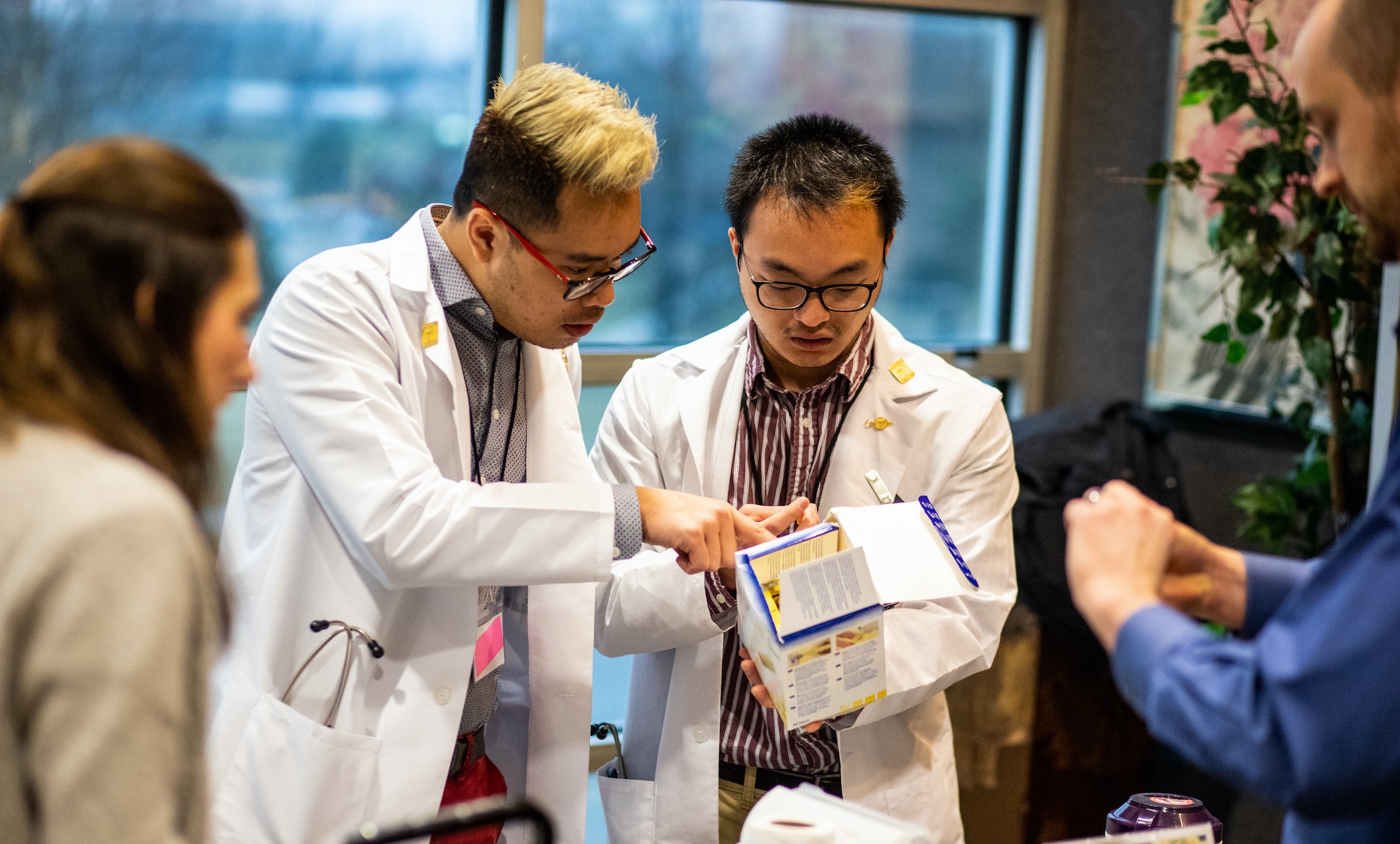
Pharmacy in top 25%; Medicine makes debut
The UMKC School of Pharmacy was tied for 31st in U.S. News and World Report Best Grad Schools rankings released Tuesday. That put the school in the top one-quarter of the 134 U.S. pharmacy schools that were rated.
“This is a testament to the quality and resilience of our hard-working students, and to the dedication of our faculty and staff,” said Dean Russell Melchert. “It’s great to be recognized nationally as we pursue our mission to improve health throughout our state and region through education, research and community engagement.”
The U.S. News pharmacy rankings are based solely on surveys of academics at peer institutions. The UMKC School of Pharmacy ranking was up from 36th in 2016, when U.S. News last surveyed for pharmacy programs.
The UMKC school also has had great success matching its graduates. The Class of 2020 had an 81% initial match rate, the program’s best ever. In addition, “pharmacist” tops a CNBC list of top-paying professions right out of school, with a median annual salary of $123,670.
The UMKC School of Medicine also joined the rankings for the first time this year, placing 75th for primary care medical schools and 88th for research medical schools. U.S. News said its rankings covered 122 accredited medical and osteopathic medical schools that participated in the rankings, out of 189 that were asked.
“Our school is known for excellent clinical training and great success in residency matching. We also offer expanding research opportunities.” — Interim Dean Mary Anne Jackson, M.D.
UMKC, whose innovative six-year program takes most of its students right out of high school, has not participated in past surveys because its program is so different from others in the United States. Interim Dean Mary Anne Jackson, a 1978 graduate of the program, thought it was time to join the survey.
“Our school is known for excellent clinical training and great success in residency matching, throughout the Midwest and at Mayo and other top institutions,” Jackson said. “We also offer expanding research opportunities and have placed students in the top National Institutes of Health student research program for several years in a row.”
The medical school rankings were based on a weighted average of indicators, seven for the primary care rankings and eight for research. Some indicators were quality assessments by academic peers and residency directors. But most were objective data submitted by the schools, such as research activity, student test scores and acceptance rate. The UMKC school rated in the top one-third, for example, in faculty-student ratio, on a par with Stanford, the No. 4 school overall, and ahead of 78 other schools. It also did well in the percentage of its graduates going into primary care.
Dean Jackson said it took a "yeoman's effort" to compile and submit the required data for the first time, and she thanked the school's leadership team including Vice Deans Steven Waldman, M.D. '77, J.D., and Paul Cuddy, Pharm.D., M.B.A., for their efforts.
Mar 18, 2020
-
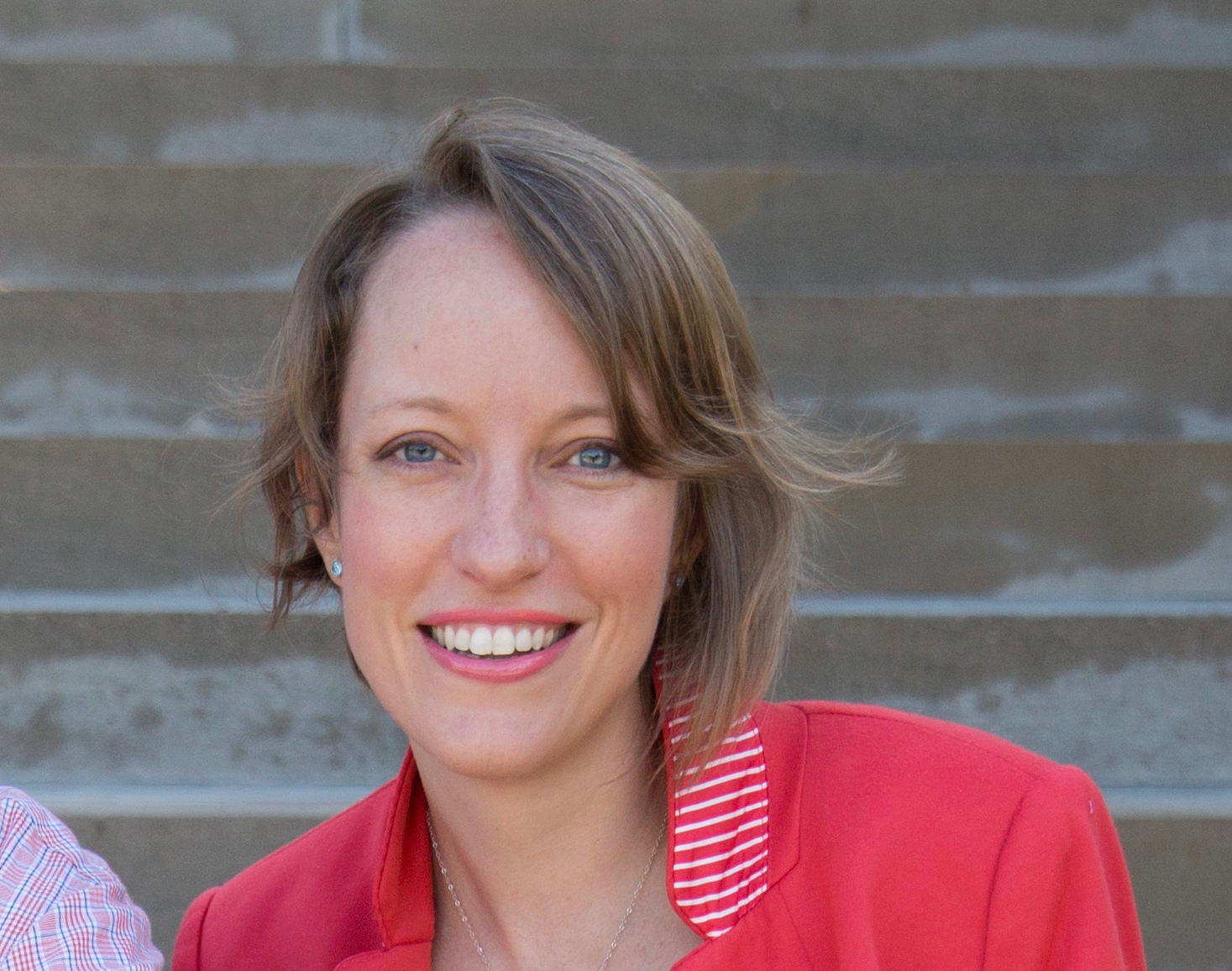
Research focuses on women and politics
Rebecca Best, assistant professor of political science at the University of Missouri-Kansas City, was one of seven awarded a Carrie Chapman Catt Prize for research on Women and Politics from the Carrie Chapman Catt Center for Women and Politics at Iowa State University. Best is also an associate faculty member of the UMKC Women, Gender and Sexuality Studies Program.
Best’s research study, “Gendered Reintegration of Veterans and Political Representation of Women in the United States,” will examine whether there are gender differences in how certain types of reintegration experiences influence a veteran’s interest in and willingness to vote, run for office or engage in activism. The study will also explore whether factors such as marital status and dependent children have a gendered effect on the willingness of veterans to engage in politics. The award, valued at $2,000, will be used to fund a survey of military veterans, at least 40% of whom will be women.
We spoke to Best about her research on women and politics.
What got you interested in researching women’s military service?
Several years ago, I went to Fort Leavenworth to give a presentation on women in rebel groups. Through that visit, I got connected with Kyleanne Hunter, a doctoral candidate at the University of Denver who had previously served as a fighter pilot in the Marine Corps. We had similar ideas about why women engaged in political violence, in that we both believed that women’s reasoning was not fundamentally different from that of men, though their circumstances and the options available to them might be different. We started studying veteran women because it turns out to be much easier to survey and interview military veterans than to interview women in rebel groups (though scholars like Mia Bloom and Angie Nichols among others have been doing excellent work interviewing former rebel women).
What do you hope happens as a result of your research?
Primarily my research goals are to better understand social science phenomena, but I also think that there are often important policy implications of social science research. With this project I am interested in better understanding how gender creates unique challenges for veterans reintegrating into society. I hope that a better understanding of these challenges will contribute to the development or programs and support networks designed to ease the transition out of military service. I also hope that this research can call attention to the contributions of the many women who have served and are serving in the United States military – including political scientists like Dr. Ky Hunter, Dr. Angie Nichols, and Dr. Theresa Schroeder. Finally, I hope that we can get a better sense of the causes of the gender gap in political representation and the types of policies that might help to further reduce this gap.
Tell us about the research this award will help with?
This award will help me to fund a survey of veterans of the United States military (both male and female). The purpose of the study is both to understand the gendering of reintegration experiences and how different reintegration experiences influence the willingness of veterans to run for office. This project builds on work by Jennifer Lawless and Richard Fox who find that an important cause of the gender gap in political representation is that women are less likely to run for office – for a variety of reasons including concerns about their own electability, family concerns and not being recruited to run. Specifically, Lawless and Fox surveyed men and women from several backgrounds that are common among lawmakers (law, education, entrepreneurship and political activism). The money from the Catt prize will allow me to extend this work to military veterans, tailoring the survey to experiences of veterans.
Who are the women who influence your work the most?
I have been lucky to be surrounded by supportive women here at UMKC and in my field of political science. Within my department, Beth Vonnahme, Debra Leiter and Mona Lyne have all been important mentors, sounding boards for new ideas and friends. There are many women doing exciting work in political science and international relations right now – and more than I can name here have impacted my own work. A few influential women include Cynthia Enloe, whose work on women, gender and international relations is both a lot of fun to read and incredibly insightful; Mary Caprioli, whose work evaluates links between gender inequality and armed conflict; Barbara Walter who uses strategic theory to resolve puzzles surrounding civil conflict resolution; Kelly Kadera who both consistently promotes other women in conflict studies and publishes innovative research on interstate conflict as well as women and gender in international relations; Carla Martinez Machain who studies arms transfers, military deployments, and air strikes, in addition to being an excellent mentor and friend for other women in political science; and Jakana Thomas, Alexis Henshaw, and Kanesha Bond, who have all published really interesting empirical evaluations of women in rebel groups.
How do you influence others?
The most impactful part of my job is teaching UMKC students. In doing that, I hope to help students see the relevance of academic work to both public policy and their own lives. For example, in my conflict resolution class students read academic literature on negotiating strategies and we discuss examples of implementing these strategies both in larger scale political negotiations (like peace processes) and in negotiations over salary and benefits. Similarly, I ask my students to consider how the theories we discuss in class are reflected in the stories they read in the news from negotiations with the Taliban to protests in Iran. I’ve published some of my own thoughts on these and other issues in public forums such as the Washington Post’s Monkey Cage, the Conversation and Political Violence @ a Glance.
Mar 18, 2020
-
Professor Emeritus Max Skidmore on presidents and pandemics
Washington Post columnist says President Trump is "frantically rewriting his epic failures." Max Skidmore, UMKC political science professor emeritus and the author of a book on presidential responses to pandemics, is interviewed for the article.
“We are weeks behind where we should have been if a competent administration had been handling the reaction," Skidmore said. Read the full column here.
In an article for The Guardian, Skidmore commented on the president's use public health concerns to fuel his argument for travel bans and cuts to interest rates, Medicare and Social Security. Read the full article here.
Skidmore told the Voice of American that Trump "rejects the principles of science" and "is distrustful of experts." Read the article here.
Mar 18, 2020
-
Leigh Salzsieder, chair of the Department of Accountancy at UMKC, demonstrates an online class for The Beacon.
The demonstration is part of efforts to reassure students that they will experience high-quality teaching even when in-person classes can't meet. Check out the full report here.
Mar 18, 2020
-
Alice Arredondo, director of admissions at the University of Missouri-Kansas City, is part of an Inside Higher Ed report on attracting new students.
Arredondo said weekly webcasts on a different admissions topic are helping to get the word out to prospective students who can't visit the campus. Read the full report here.
Mar 16, 2020
-
WAC Tournament Canceled Due to COVID-19, Roos Get First Berth into Tournament
Because the Western Athletic Conference had to cancel its postseason tournaments, the conference-leading UMKC Roos women’s basketball team gets the conference’s automatic NCAA Tournament bid, The Kansas City Star reports. The WAC championship was the first conference title for the women's basketball team. Read more about the team here.
Mar 12, 2020
-
UMKC emphasizes safety as the Centers for Disease Control and Prevention says those are the riskiest countries (currently China, South Korea, Iran ...
UMKC also is asking all community members returning from visits to the affected countries to “stay home and self-monitor for 14 days.” See the full report here.
Mar 10, 2020
-
Beth Vonnahme, UMKC interim associate dean, chair and associate political science professor, was a guest on the KCUR "Up to Date" program.
The Democratic presidential primary pits Joe Biden against Bernie Sanders. The program also included a segment on keeping your family safe from the coronavirus. Listen here.
Mar 09, 2020
-
Theresa Maxwell to receive the UMKC School of Nursing and Health Studies Alumni Achievement Award
Each year, the UMKC Alumni Association recognizes the achievements of outstanding alumni with an awards celebration. UMKC is honoring Theresa Maxwell (M.S.N. ’01) with the School of Nursing and Health Studies Class of 2020 Alumni Achievement Award.
Theresa Maxwell (M.S.N. '01)
Maxwell’s 30 years in nursing has been driven by her expertise in gastroenterology — disorders of the stomach and intestines — and her passion for its patients. As an ostomy specialist and nurse practitioner at Digestive Health Specialists in St. Joseph, Missouri, Maxwell works closely with physicians to provide the best specialty care in the region. She even started her own business, Image Specialties, when she felt that companies were substituting items where they shouldn’t, overbilling and subscribing to generally unscrupulous practices. Additionally, Maxwell contracted with nursing homes, home health agencies and hospitals to provide pre-operative teaching, in-services and educational programs. We spoke with her recently about her path in nursing.
How did you choose your specialty of gastroenterology?
I liked surgical nursing and any procedures that I could do. I identified a need for an ostomy and wound-specialized nurse and became one. The ostomy specialty was by far the most rewarding nursing that I had ever done, much to my surprise. Most of my patients, especially the ones who are ostimates, appreciate me. Nursing is frequently an underappreciated profession and I like being where I feel needed and appreciated.
You’ve worked in a variety of settings, including a hospital, surgeon’s office and as a home health clinician. Did you enjoy one workplace more than the others?
I really enjoyed having my own practice, except I was the worst boss that I have ever worked for! I believe each job that I’ve held had its role in making me more well-rounded and independent.
Tell us about your role at Digestive Health Specialists. What is a typical day like for you?
I have clinic every morning which includes seeing patients for a variety of issues including office procedures. Most mornings, I am the only provider in the office, so I will usually triage any calls or walk-ins that occur as well. I do another clinic in the afternoon, then I go to the hospital for rounds or work in my office charting and doing administrative duties.
About the Alumni Awards
Join us in honoring Maxwell and the other Class of 2020 Awardees in our first-ever virtual celebration at 5 p.m. April 16. Go to umkcalumni.com/alumniawards to register for this free event. If you are unable to attend the event but would like to donate to student scholarships, contributions can be made online.
Mar 06, 2020
-
Kevin J. Blinder to receive the UMKC School of Medicine Alumni Achievement Award
Each year, the UMKC Alumni Association recognizes the achievements of outstanding alumni with an awards celebration. UMKC is honoring Kevin Blinder (M.D. ’85) with the School of Medicine Class of 2020 Alumni Achievement Award.
Kevin Blinder (M.D. '85)
As an ophthalmologist, Blinder is a leading specialist of vitreoretinal diseases — which affect the back of the eye and fluid around it. A partner at the Retina Institute in St. Louis, Blinder is also a professor of ophthalmology at Washington University and has trained countless residents and fellows in retina education. In addition to teaching, operating and seeing patients, he has an interest in clinical research and has been an investigator in more than 30 clinical trials dealing with a variety of vitreoretinal pathology. He spoke with us about his specialty and time at UMKC.
Did you know you wanted to pursue ophthalmology while getting your degree?
I had no idea what area of medicine that I was going to specialize in early on. All I knew is that I wanted to be a physician and that I wanted to be in the six-year medical program that UMKC offered. I had an interest in ophthalmology throughout medical school and chose my specialty after taking the elective offered at UMKC with Dr. Felix Sabates.
You find time to participate in clinical research in addition to your other roles. Where does your passion for research stem from?
We learned early on in medical school the way to advance medicine is to ask questions and pursue answers. Clinical research attempts to answer these questions, from the simplest to the most complex. We can offer our patients cutting-edge technology that otherwise may not be available outside of the research protocol and benefit those that participate in the students and many other future patients.
You travel monthly to Quincy, Illinois, to serve patients without access to specialty care. How did you get involved with the clinic there?
I was approached many years ago by one of my former roommates from medical school, Eric Sieck, to come to his office in Quincy and provide retinal care. I take an entire crew with me for what is usually a 15-hour day to provide care for patients who would otherwise potentially go untreated. It has been very fulfilling to provide this service and to work in the same office as one of my classmates and dearest friends from my medical school days.
What is a memory that stands out from medical school?
I think the most vivid and profound memory that I still have nightmares about is the night I was on call during a docent rotation when the Hyatt Regency walkway collapsed. We were asked to first assist in the ER, triaging and treating survivors as they were brought in over from the hotel. Then they asked for volunteers to go to the scene where people were trapped underneath tons of concrete to assist with rescue efforts; 114 people were killed, and 214 people were injured. I would like to think that we played a role in saving those 214 people who survived.
About the Alumni Awards
Join us in honoring Blinder and the other Class of 2020 Awardees in our first-ever virtual celebration at 5 p.m. April 16. Go to umkcalumni.com/alumniawards to register for this free event. If you are unable to attend the event but would like to donate to student scholarships, contributions can be made online.
Meet the rest of the 2020 UMKC Alumni Awardees
Mar 06, 2020
-
It's the first conference championship for the team, which sewed up the title with Thursday’s 61-53 victory over Utah Valley.
See KMBC's report on the victory, and read The Kansas City Star's account of how the championship came together.
Mar 06, 2020
-
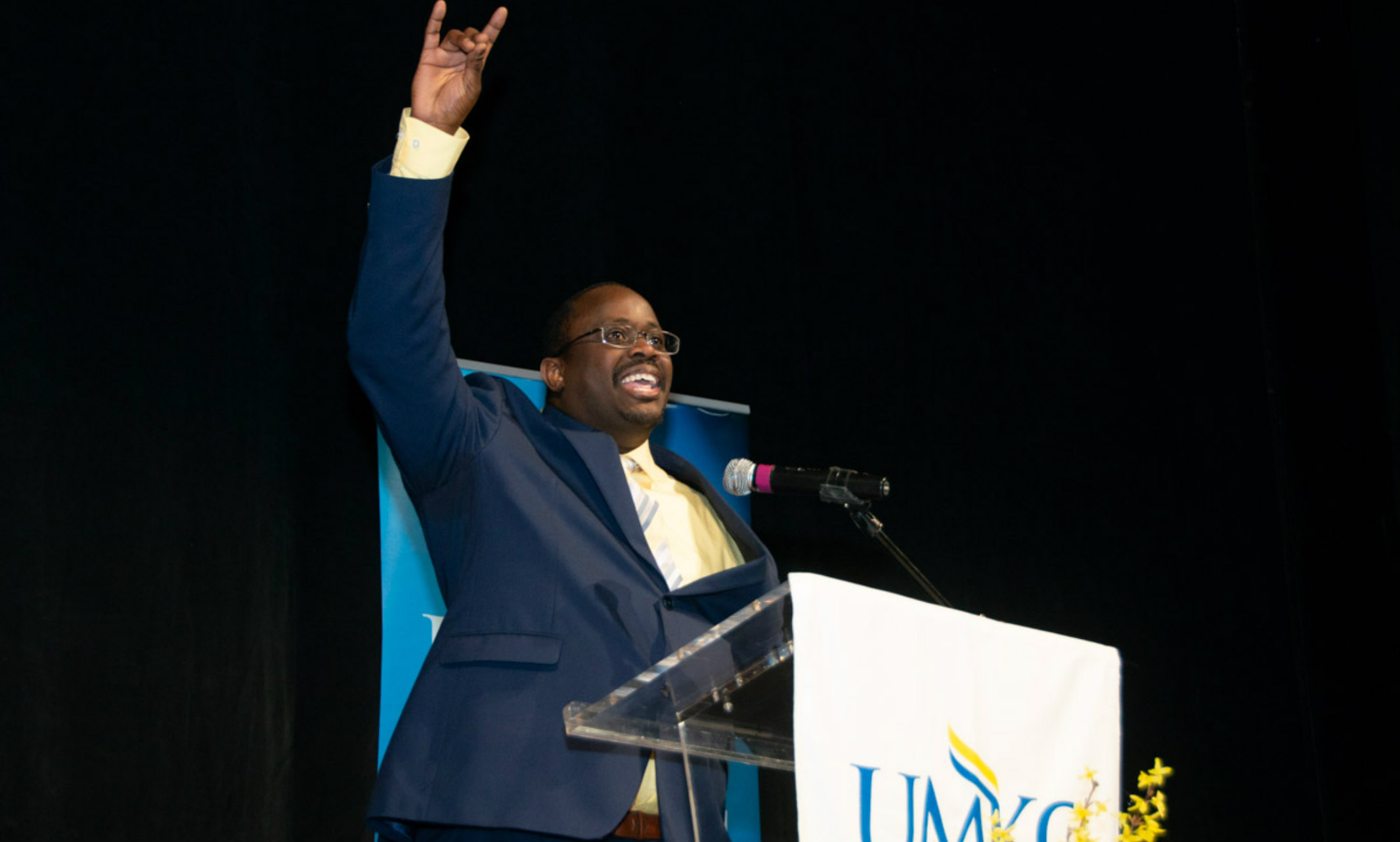
Annual ceremony recognizes contributions
Excellence at UMKC is not just the standard for our students, it is the standard for everyone who lives, works and visits our university. For more than 1,300 staff members, excellence in customer service and quality of work are not just university values, they’re personal ethics, and the annual Staff Awards event gives our campus community a chance to recognize those who make a difference at UMKC.
On the morning of March 4, hundreds of staff members gathered for the annual Staff Awards celebration in the James. C. Olson Performing Arts Center to celebrate a commitment to student success, diversity and inclusion, engagement and outreach and research and discovery. The celebration also included milestone anniversaries, staff who were a part of the 2019 graduating class and staff who completed leadership development courses offered through the university.
“Whether you work directly with our students, coordinate programs and services for the greater Kansas City community or provide support to keep this university running, what you do here matters.”
- Interim Provost Jenny Lundgren
Congratulations to the 2020 Staff Awards recipients
40-year Milestone Anniversary
Kevin McCarrison
2019 spring, summer and fall graduates
Emily BrownCynthia ChristyMegan FrasherRussell FriendHilary McNeilJulie MyerBailey WaltonSybil Wyatt
Supervisory Development Series Graduates
Casey BauerLaura BegleyKenneth BledsoePetra BrickerAndrea BrownEmily BrownLauren ButlerAllan DavisKinglsey KakieJessica KeithBridget KoanAlia KrzyzanowskiTamica LigeDerek LongDea MarxAshley MasonBrenton McCoyAngela McDonaldLaura MoorePatricia MullinMike NorrisNikhilia Donti ReddyEmily ReebHea Kyung ShoemakerAmber SotoCasey StauberRichard ThomasSeth TracyJodi TroupAlmaz Wassie
Administrative Leadership Development Program Graduates
John AustLaura BegleyChad BristowAmber DaughertyJeffery HeckathornMakini KingBecky MarkleyKady McMasterSarah Mote
Staff Council Dedication Award
Alexandra Schumacher
Living the Values Awards
Selena Albert, School of Computing and EngineeringSilas Arnold, School of Biological and Chemical SciencesNancy Bahner, School of PharmacyAyleen Bashir, Innovation CenterJennifer Parker Burrus, ConservatoryElizabeth Couzens, School of LawRoland Hemmings Jr., Student AffairsKristen Kleffner, School of MedicineRandy Krahulik, Intercollegiate AthleticsAudrey Lester, College of Arts and SciencesJennifer Lyles-Maqsood, School of Nursing and Health StudiesGuadalupe Magana, School of EducationShana Malone, Office of Registration and RecordsLindsey Mayfied, Strategic Marketing and CommunicationsTanya Moore, School of DentistryGene Pegler, Henry W. Bloch School of ManagementHeather Swanson, Finance and AdministrationLaura Taylor, National Museum of Toys and MiniaturesGail Williams, University LibrariesSandy Wilson, Office of Research Services
University Staff Awards
Excellence in Student Success – Kaitlin Woody, External Relations and Constituent EngagementExcellence in Research and Creative Works – Stephanice Griffin, School of Computing and EngineeringExcellence in Engagement and Outreach – Christina Davis, School of Computing and EngineeringExcellence in Multiculturalism, Globalism, Diversity and Inclusion – Anthony LaBat, University LibrariesExcellence in Planning, Operations and Stewardship – Kevin Mullin, College of Arts and SciencesChancellor’s Staff Award for Extraordinary Contributions – Ted Stahl, Office of Human ResourcesRising Star Award – Ivan Ramirez, Office of Multicultural Student Affairs
Learn More About UMKC
Mar 05, 2020
-
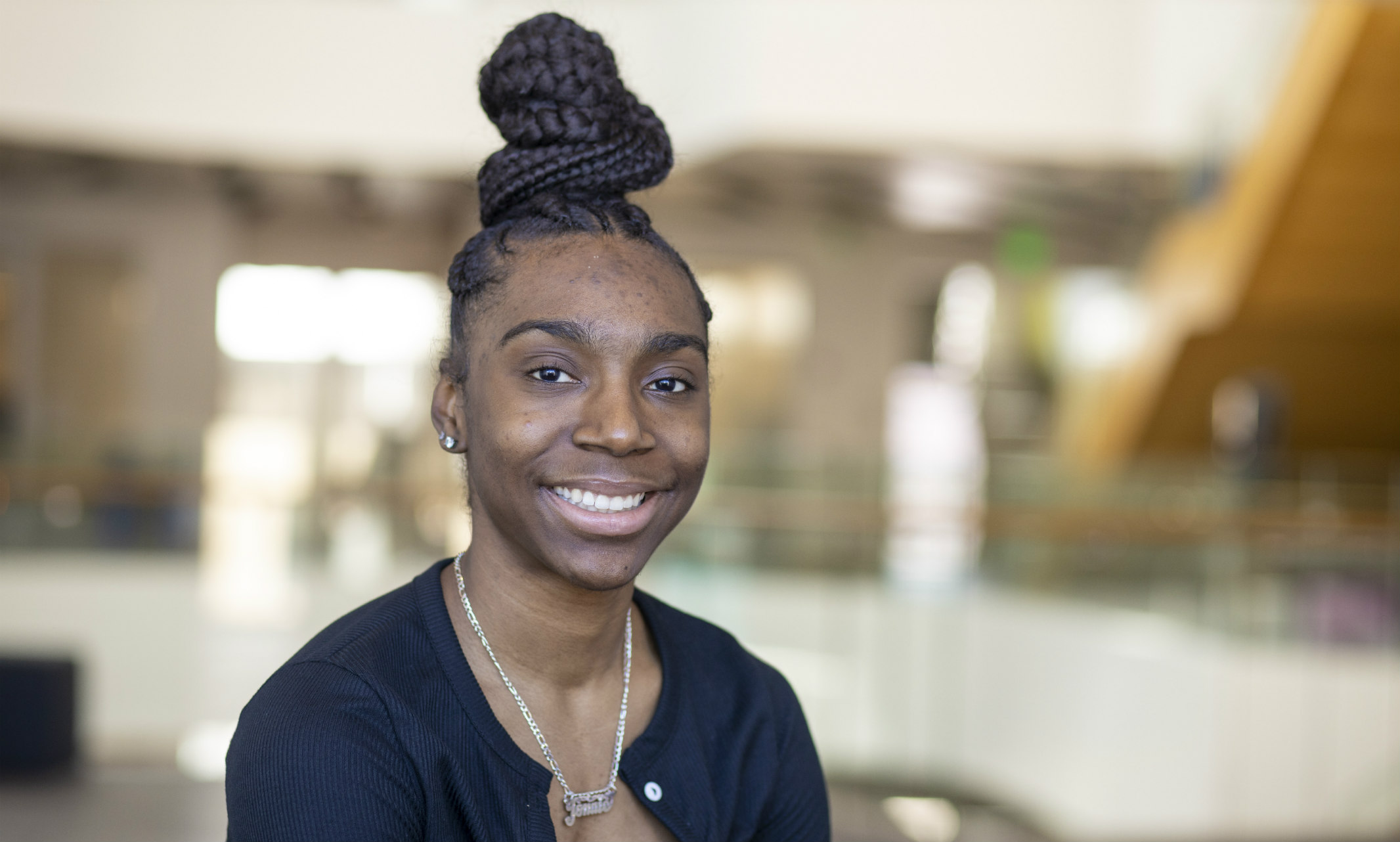
Jonaie Johnson juggles the demands of college basketball and the rigorous Entrepreneurship Scholars program receives top honor
Get to know our people and you'll know what UMKC is all about.
Jonaie Johnson ‘22
Hometown: Chicago, Illinois
Degree Program: Business administration with an emphasis in entrepreneurship
High school: Kenwood Academy
Jonaie Johnson received this year’s Henry W. Bloch School of Management’s Regnier Institute for Entrepreneurship and Innovation Student Entrepreneur of the Award for her development of Interplay, an interactive dog crate that allows owners to interact with their pets while they are away from home. She first learned of the Bloch Entrepreneur of the Year recognition in 2018 while she was volunteering for the event. Even then she could see herself receiving this recognition.
“Seeing Andrea Savage receive the Student Entrepreneur of the Year award was very inspirational. From that moment forward, I knew this honor was something I wanted to achieve.”
When she received the news that she had been selected she was overwhelmed.
“I had so many emotions. I was happy, relieved and very enthusiastic. I immediately FaceTimed my mom to tell her. I couldn’t stop smiling.”
“I knew this honor was something I wanted to achieve.” — Jonaie Johnson
While she keeps in mind that starting a new enterprise is challenging – and not always successful – she focuses on why she’s working to fulfill this dream.
“I believe that Interplay is going to be significantly successful,” Johnson says. “This award is a reminder that my hard work and dedication to entrepreneurship has not gone unnoticed and is paying off.”
Johnson has a history of success. The sophomore women’s basketball guard is recognized as a team leader following a high school basketball career where she was recognized with All-Conference honors her sophomore and junior years, and earned All-City, Second Team All-State, Chicago Tribune Third Team All-State and Kenwood Academy Player of the Year during her senior season. But not all of her accomplishments were on the court. Johnson was valedictorian of her 8th grade class and graduated 5th in her high school class with a 5.1 GPA.
Johnson is seen as a leader on the Western Athletics Conference champion Kansas City Roos women’s basketball team, but is also excelling in the Bloch School Entrepreneurship Scholars (E-Scholars) program. Interplay is a dog crate designed to provide remote interaction – including video and audio access, locking and unlocking features and the ability to provide food and water – for a dog and its owner through a mobile app.
Why did you choose UMKC?
It was a combination of things. I was recruited for basketball, but I really had no idea about what UMKC was like. I had other schools recruiting me, so I wasn’t sure UMKC would be for me. But once I came here and was on campus, I loved it. And then once I realized that it was one of the few schools where you could major in entrepreneurism on the undergraduate level, that was the decision maker for me.
Why did you choose your field of study?
I developed the idea for Interplay for a project when I was in high school. My aunt was always leaving our family events to go home to feed her dog. I thought, “Wouldn’t it be great to do that remotely?” I want Interplay to be the Apple of dog crates.
My freshman year, I attended an event and was seated with Mary and Tom Bloch. They mentioned the Entrepreneur of the Year program at the Bloch School and asked me if I was going to be there. I actually didn’t know about it, but I offered to volunteer to help people to their seats.
I was wondering about the companies that were presenting and someone told me that they were part of the Entrepreneurship Scholars (E-Scholars) program. I had a clipboard with the seating assignments, but underneath I had my business model. That night I had the opportunity to talk with Ben [Gruber, director Regnier Institute] and I was able to show him my plan. That’s how I ended up in E-Scholars.
“I want Interplay to be the Apple of dog crates.”
What are the challenges of the program?
The biggest challenge for me is time management. On top of the course work, in college you have a lot of events and activities going on around you and you want to hang out with friends. The freedom itself is an adjustment because you don't necessarily have your parents guiding you and telling you what to do and what not to do. Being able to stay focused and manage my time is a challenge. But I do have fun! I enjoy school and working on my company. I’m kind of a nerd. I love learning.
What are the benefits of the E-Scholars program and participating in athletics?
There are a lot in both cases. The E-Scholars program laid the foundation for my company. They took me from a simple idea to a viable business.
When I came into the program, my company was nothing more than a cool idea for a product. Their resources, connections and mentors took me from an idea to a viable business. Their coursework taught me how I should strategically go about starting my venture to avoid many mistakes entrepreneurs make when starting a company. Their continuous support and help throughout the program, and even after I graduated from E-Scholars, has been a major key in the success I’ve had thus far with my company.
When it comes to starting my career, I know companies are always looking for college athletes. Even some of my mom’s managers at Eli Lily are always asking when I’m going to graduate. We have the time management, discipline and the ability to work with others that we learn in the team setting.
Since entering college, what have you learned about yourself?
I've learned how hard I can work, what I can really do and how mentally strong I am. I've always known it about myself, but my experiences in college have enhanced that.
What’s the best piece of advice you have ever received from a professor?
When I went to talk to Jené Hong, who is a mentor in residence in the E-Scholars program, about my company, she told me, “Do what you do best and hire the rest.” That’s the thing that keeps me going. I know I can’t master and be strong at everything, but I can understand what and how things need to be done and work with others who can complement my skills.
What is one word that best describes you and why?
Driven. Because I consistently strive to be the best me in any and everything I do. I’m very goal oriented, and I don’t stop until I achieve my goals.
What’s your greatest fear?
Not reaching my greatest potential.
“I enjoy school and working on my company. I'm kind of a nerd. I love learning.”
Do you have a role model?
Absolutely. It’s my mom. I’m an only child, and we have a really tight-knit relationship. From a young age, she was one person that I could look up to. She was a Mary Kay director and got the pink Cadillac in a short amount of time. Now she’s a pharmaceutical rep and she’s always one of the top sales representatives. She always goes above and beyond.
Were you always interested in sports in general or basketball specifically?
I’ve always been a competitor. Growing up, I loved sports. I started out playing baseball. I was the only girl on the all-star baseball boys’ team and I made the all-star game. When I had to transfer over to softball I didn’t really like it. It was softer to me, and I liked baseball more. But in between seasons when it was cold outside, my mom put me in basketball. It took off from there.
When you started playing did you think you would play in college?
When I started playing competitively, I was determined to play in college. My mom was so worried about how she was going to pay for college and where the money was going to come from. I always told her “Mom you’re not going to have to worry about college. I’m going to get an academic scholarship or a basketball scholarship.” I was pretty confident about that.
We’ve heard that sometimes your teammates call you “the CEO.” Do you see yourself as a leader?
I do, but my mom always tells me that I don't necessarily walk in the room and try to take charge and take the lead. People just naturally flock to or look to me as a leader. I usually don’t want it, but it comes.
There are a lot of young girls who come to watch your games. Do you see yourself as a role model? What would you tell them about pursuing sports in college?
I’m usually so focused during the game, that sometimes I forget that they may see me as a role model. But, I would tell them that if they find a passion and have a heart for it, to work hard and just let it happen. If it’s meant to be, everything will fall into place.
Mar 05, 2020
-
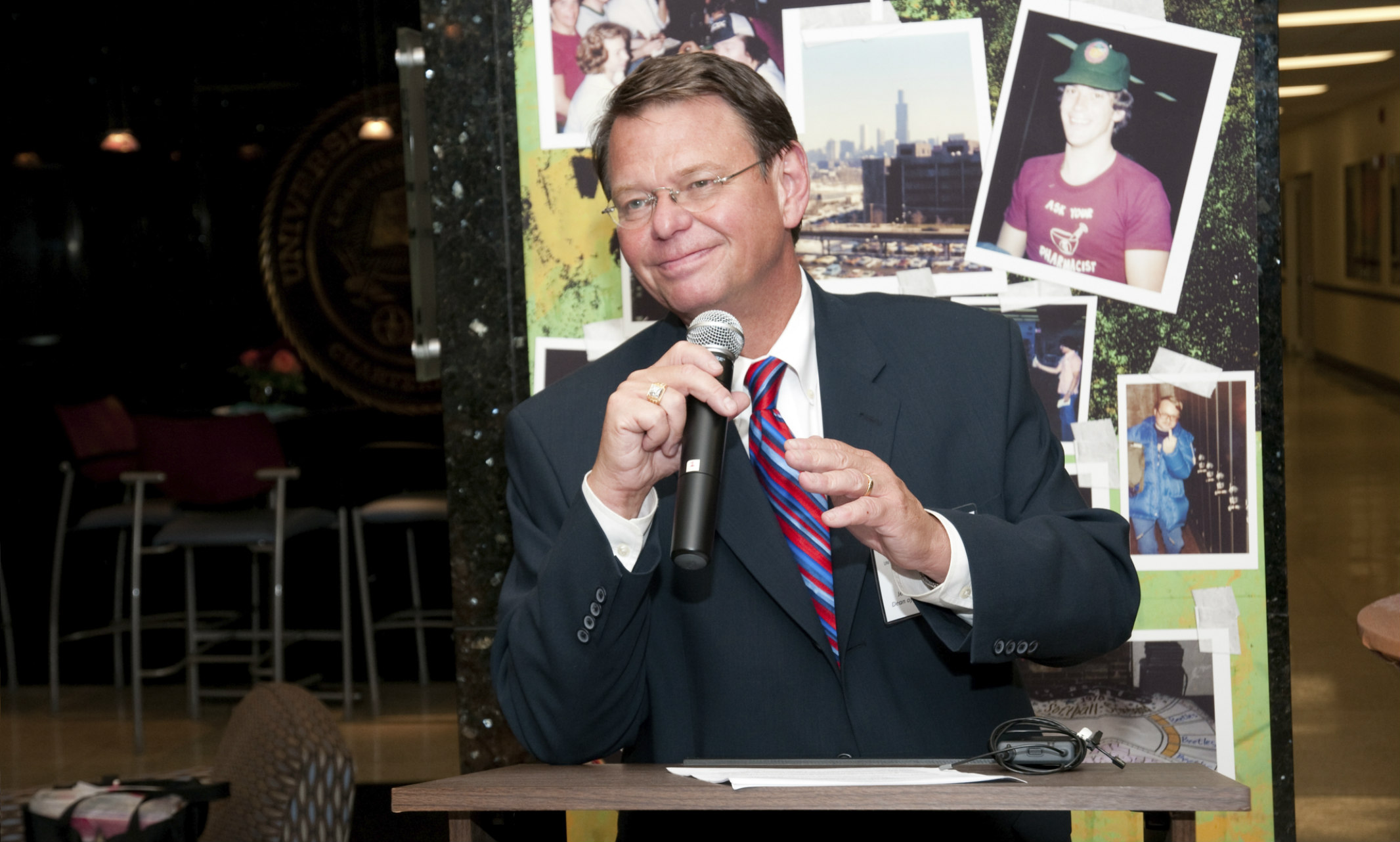
Jerry L. Bauman to receive the UMKC School of Pharmacy Alumni Achievement Award
Each year, the UMKC Alumni Association recognizes the achievements of outstanding alumni with an awards celebration. UMKC is honoring Jerry Bauman (Pharm.D. ’78) with the School of Pharmacy Class of 2020 Alumni Achievement Award.
Bauman has had a distinguished 40-year career as a pioneering clinical pharmacist, educator, practitioner, researcher and leader. Currently editor-in-chief of the Journal of the American College of Clinical Pharmacy, Bauman was dean and distinguished professor at the University of Illinois at Chicago College of Pharmacy for nearly 12 years. His research on the clinical pharmacology of cocaine and cardiovascular drugs, specifically anti-arrhythmic medicines, earned him international recognition. He recently spoke with us about his career.
You were the first pharmacist elected as a fellow of the American College of Cardiology (ACC). How did that feel?
I was extremely proud to be elected as such. Today, there are quite a few pharmacists who have been elected as fellows in the ACC and I feel as if I, in part, paved the way. Shortly after I was elected, the ACC office called me because they thought I had misprinted my degree — that is how I knew I was the first.
"The Pharm.D. program transformed me into a confident and competent clinical pharmacist."—Jerry Bauman
Tell us about your internationally-recognized research on the clinical pharmacology of cocaine and cardiovascular drugs.
I developed an interest in arrhythmias at UMKC and Truman Medical Center and then at the University of Illinois at Chicago, I was fortunate to be working with an incredible group of electrophysiologists. There, I began to study drug-induced arrhythmias and eventually saw the similarities between cocaine and anti-arrhythmic agents. We then defined the electrophysiology of cocaine and found agents that could reverse its effects. The agent was sodium bicarbonate, which is still recommended and came from my experience at Truman Medical Center.
How did UMKC contribute to your success?
I can’t overemphasize how it contributed to my success. The Pharm.D. program transformed me into a confident and competent clinical pharmacist. I used the knowledge and skills I developed there to create my academic career, including research programs and teaching style.
About the Alumni Awards
Join us in honoring Bauman and the other Class of 2020 Awardees in our first-ever virtual celebration at 5 p.m. April 16. Go to umkcalumni.com/alumniawards to register for this free event. If you are unable to attend the event but would like to donate to student scholarships, contributions can be made online.
Meet the rest of the 2020 UMKC Alumni Awardees
Mar 05, 2020
-
Mattingly is on the edge of leading the Roos to their first Western Athletic Conference crown.
Mattingly, who came to UMKC from Wichita, also is the leading candidate for conference player of the year. Hear the full KCTV5 story here.
Mar 05, 2020
-
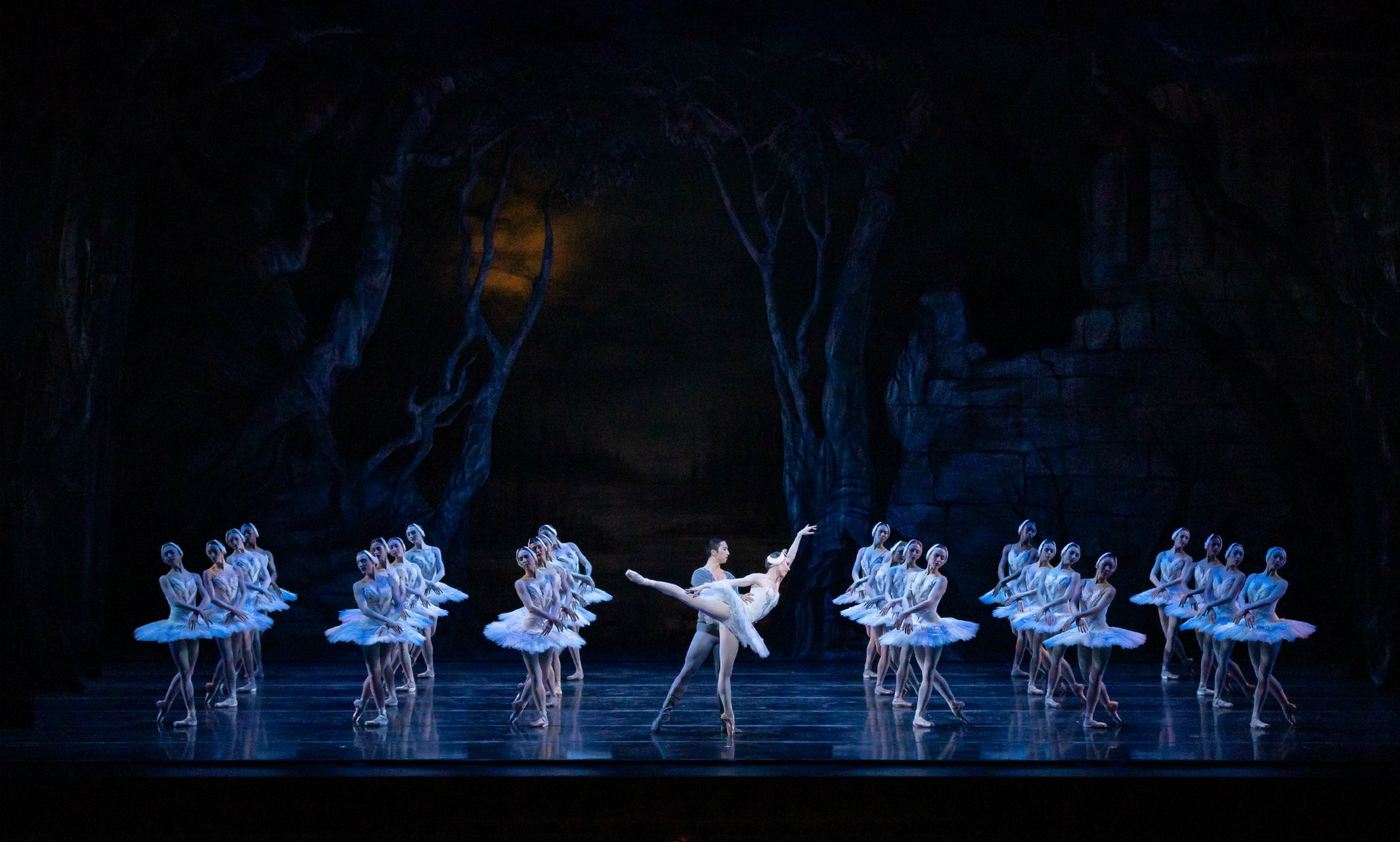
Erica Lohman performs in one of the most recognized ballets of all time
Get to know our people and you'll know what UMKC is all about.
Erica Lohman
Anticipated Graduation: 2021
Academic Program: Dance, Conservatory
Hometown: Indianapolis, Indiana
High School: Mt. Vernon High School
Erica Lohman, a senior studying dance, chose the UMKC Conservatory because she knew the dance department allowed students to take leaves of absence to participate in professional performances. Since she’s been a student she’s toured with had the opportunity to perform with the Kansas City Ballet in The Nutcracker, and most recently, Swan Lake.
Have you performed with ballet companies like this before?
Yes! I grew up dancing at a ballet school in my hometown that put on two full-length ballet productions a year, so I definitely have a soft spot for these types of productions. I took a leave of absence to dance professionally with Albany Berkshire Ballet in 2018, where I performed in their annual tour of The Nutcracker in the northeast United States. I also performed with the Wylliams/Henry Contemporary Dance Company last fall before participating in Kansas City Ballet’s productions.
Lohman, left, rehearsing for Swan Lake; image courtesy of Kansas City Ballet, photography Courtney Nitting
What does it feel like to be on a stage with seasoned professionals?
I have looked up to the dancers in Kansas City Ballet for many years, so at first it felt very strange and a little intimidating to be dancing alongside them. That being said, both the dancers and the artistic staff were encouraging throughout the rehearsal processes for both The Nutcracker and Swan Lake. Once I got used to dancing the challenging choreography with these professionals, I really enjoyed myself. I feel inspired by these amazing artists, and dancing with them has motivated me to keep working hard and pushing myself to someday reach their level of skill and artistry.
Was the experience what you expected it to be?
Swan Lake is a very popular ballet with iconic music, so I knew what to expect with the structure of the choreography. I also knew just how hard it was going to be and how much we had to get done in rehearsals. I was part of the corps de ballet, or the 24 women who dance as the swans. We had to be precisely together and in line at all times. We spent a lot of time in rehearsals going over details like which way to tilt our heads and which wrist to cross in front of the other. It even gets as specific as how we place our fingers.
“I realized that half the battle was learning to trust myself and stay mentally calm.”- Erica Lohman
Because of this precision and how much the swans dance, doing a full-run of the ballet takes immense mental and physical stamina. For me, I realized that half the battle was learning to trust myself and stay mentally calm. It’s easy to get caught up in being “perfect” and not making any mistakes. Once I let go of those negative emotions, stayed present on stage with the other dancers, and turned to the music to carry me through, I enjoyed myself so much.
The music at the end of Swan Lake is so beautiful, and it’s
empowering to finish strong alongside 24 women who I admire more than anything. I was so moved during my last show I actually ended up crying tears of joy during that moment onstage!
Have you performed with other Conservatory students in professional productions?
There were three of us in Kansas City Ballet’s The Nutcracker this year. But UMKC dance students really get awesome professional gigs all the time! I am so proud to be a part of this dance department and feel as though it keeps getting stronger and stronger.
Mar 04, 2020
-
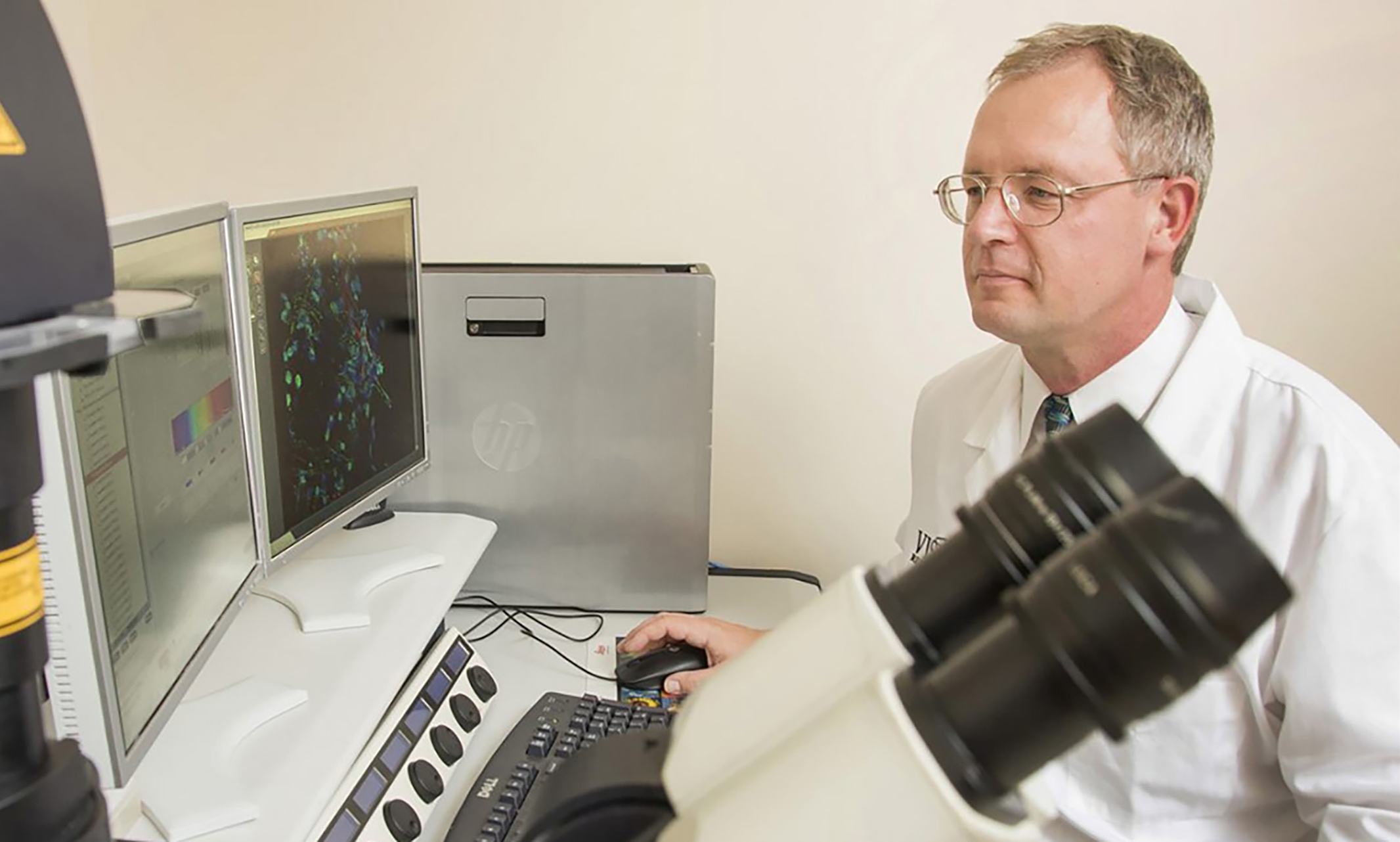
Peter Koulen receives fourth NIH grant in the past year
The National Institutes of Health (NIH) has awarded the UMKC Vision Research Center a new $120,399 grant that promotes the training of researchers from diverse backgrounds as part of ongoing research projects to develop novel glaucoma therapies.
Funded through the NIH’s National Eye Institute (NEI), the new funding is part of a larger NIH initiative to enhance the diversity of the research workforce. It will aid in recruiting and supporting students, postdoctorates, and eligible investigators from diverse backgrounds. It will also including those from racial and ethnic groups that have been shown to be underrepresented in health-related research.
“We are pleased to receive this support from the NIH,” said Peter Koulen, Ph.D., director of the Vision Research Center. “This funding is a substantial contribution to our mission to provide a more diverse workforce in biomedicine and the overall mission to discover new and improved treatments and therapies for vision health world-wide.”
The funding is part of Koulen’s NEI-supported program exploring novel therapeutic strategies to preserve the viability and function of the nerve cells of the retina affected by glaucoma. The research targets a novel mechanism of nerve cell protection utilizing intracellular calcium signaling as a drug target to treat degeneration of nerve cells in glaucoma.
“The new award is part of research that will allow us to generate data needed for the development of novel glaucoma drugs to complement existing therapies targeting abnormally high pressure in the eye,” Koulen said.
Glaucoma is a major cause of irreversible vision loss and blindness in the United States and worldwide. The disease causes degeneration in the retina and optic nerve, which connects the eye to the brain. Preventing the death of these cells is currently the only feasible way to prevent vision loss due to glaucoma.
Koulen and his team at the Vision Research Center received a $1.16 million NIH grant earlier this year to investigate a mechanism that allows nerve cells to communicate effectively and could lead to the development of such new treatments for glaucoma. He is also part of an innovative $1.5 million project exploring a novel tissue-preservation method that could help meet far-reaching clinical needs in ophthalmology and other fields of medicine
That research is focused on alternative strategies directly targeting the damaging effects of the disease on the retina and optic nerve.
“Just like elevated blood pressure predisposes patients to stroke, high pressure inside the eye is a predisposing factor for glaucoma,” said Koulen, professor of ophthalmology and director of basic research at the Vision Research Center. “There are currently several therapies available to patients to reduce abnormally high eye pressure, but when these therapies fail or cease to be effective, glaucoma and the accompanying vision loss continue to progress.”
Koulen’s project will determine how to boost the cell-to-cell communication that retinal nerve cells use to defend themselves from disease and injury. The hope is this will protect these cells from the damaging effects of glaucoma.
If successful, Koulen’s research will result in new drug candidates that would contribute to “neuroprotection” as a strategy to treat and prevent glaucoma.
New therapies could potentially act in concert with current eye pressure lowering drugs. Other areas of medicine, such as cancer treatment, have effectively employed the concept of using complementary drug action in combination therapies.
Mar 04, 2020
-
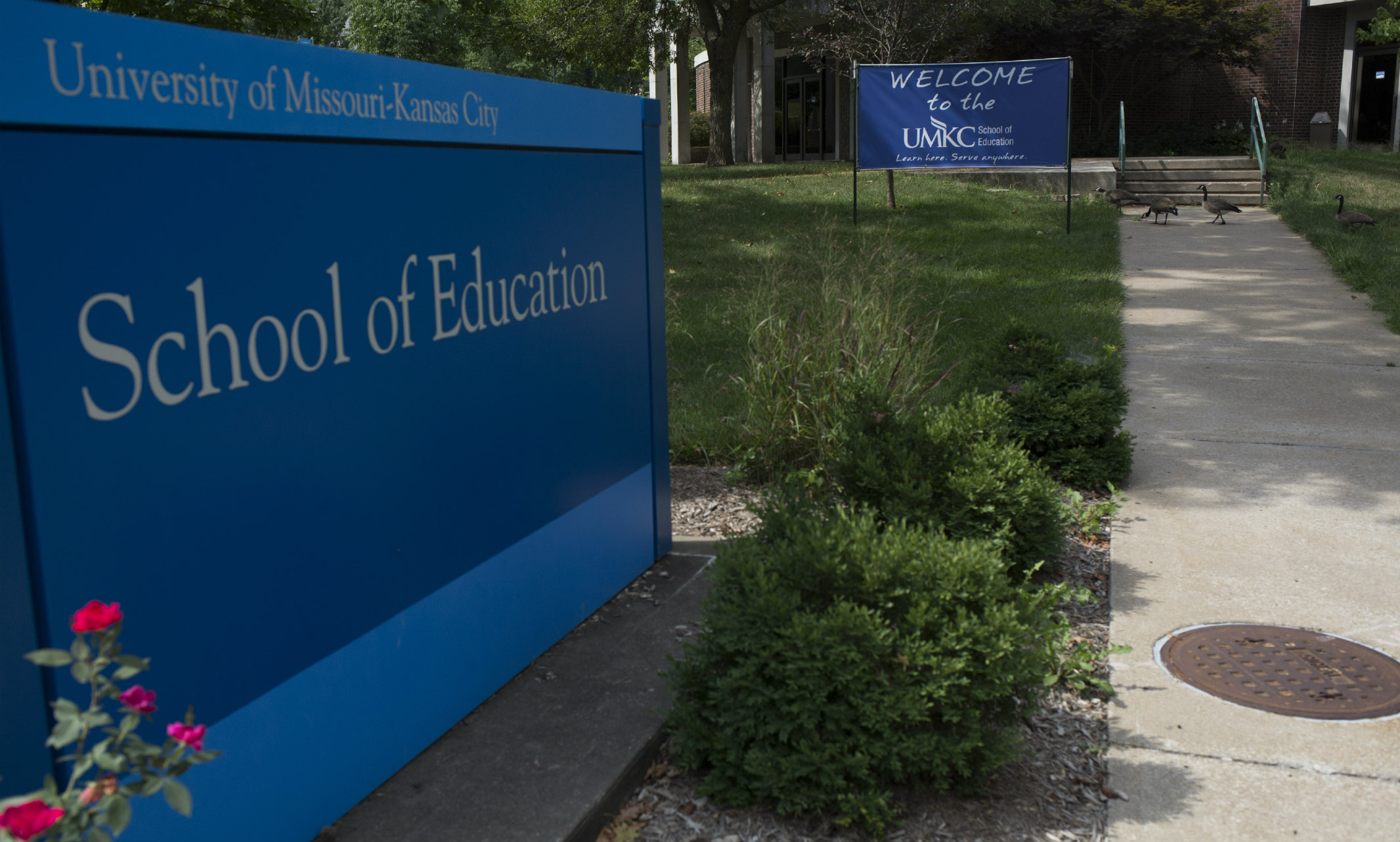
Recognition of former mayor Sly James will postponed
The University of Missouri-Kansas City School of Education has cancelled its annual Urban Education Forum scheduled for 6 p.m. Thursday, March 12. Featured speaker Marilyn Cochran-Smith, Ph.D., is unable to travel to Kansas City due to Coronavirus concerns.
The School will postpone its presentation of the Hugh J. Zimmer Award for Excellence in Urban Education to former mayor Sly James. Details regarding the new presentation date are to be determined. The biennial award is given to individuals who have affected a systematic and broad-reaching impact on urban education through policy development, program design and implementation and philanthropy.
The Urban Education Forum brings together teachers, administrators, school counselors, social workers and community members to learn from thought leaders about expanding quality education in the greater Kansas City community and is sponsored by the School of Education.
Mar 04, 2020
-
Eyeing the next generation of innovators, the Regnier Venture Creation Challenge at UMKC will expand the impact-driven contest
As part of the expansion, the competition will be open to college and — for the first time — high school students in Kansas, Missouri, Iowa, and Nebraska, the Startland News reports.
Mar 03, 2020
-
The service, Whiteboard2Boardroom, links up entrepreneurs to start companies such as Aware Vehicles.
Whiteboard2Boardroom brings together idea people and others who know how to turn ideas into products, services and startup businesses. Read the Startland News' article on the service here.
Mar 03, 2020
-
D.C. Council member proposes free public transit for residents
A study by UMKC and the KC Area Transportation Authority spurred Kansas City, Mo., to become the first large city to offer free public transit through a $9 million “Zero Fare KC” program. Now Washington is considering a similar initiative, in part because the UMKC research showed the zero fare program would generate nearly double its cost in regional economic benefits. Read The Washington Post's story about it and the UMKC research that spurred it here.
Mar 01, 2020




















